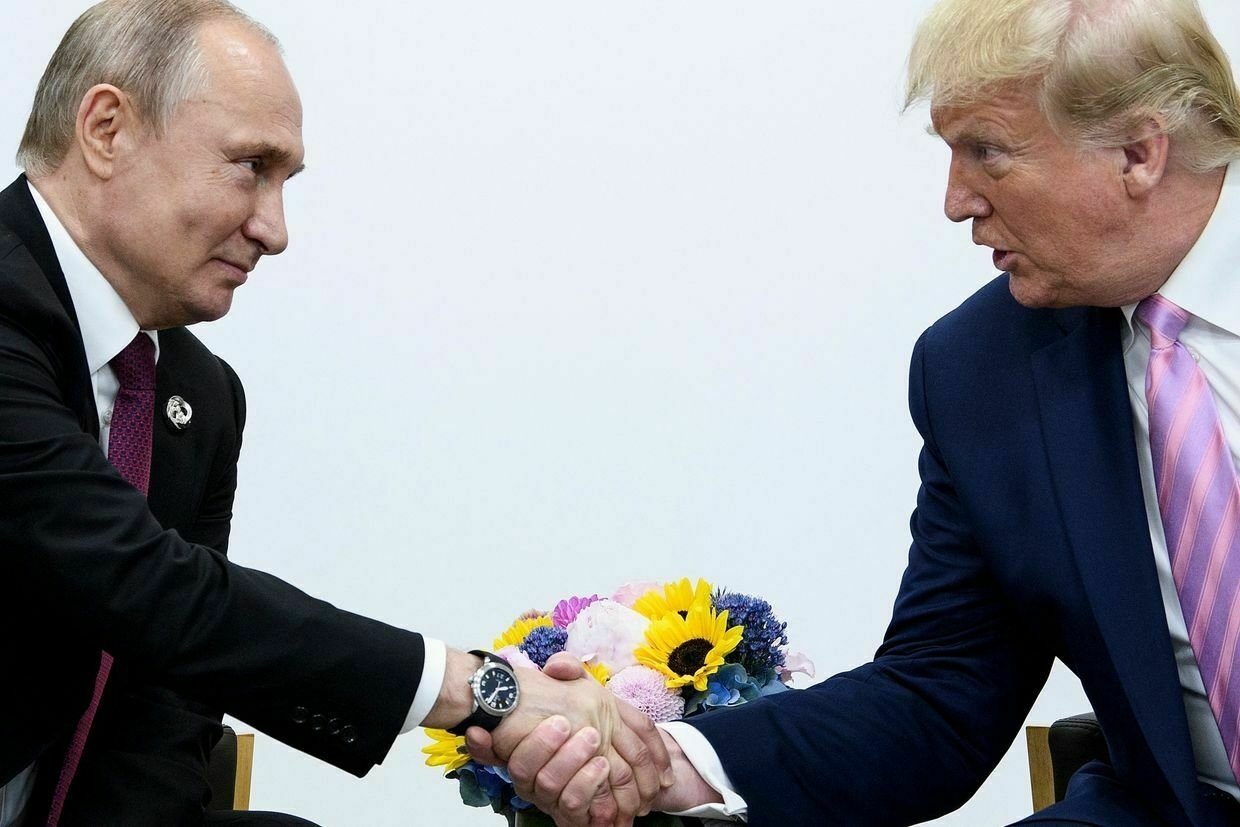-
Doctors resume operating on patients at military hospital hit by Russian strike

A hospital for injured Ukrainian soldiers in Kharkiv has resumed performing operations after the facility was hit by a Russian drone strike on March 29, the hospital announced on March 30.
The military hospital was deliberately targeted in a Russian attack that killed two people and injured 25 others in Kharkiv and the surrounding oblast.
“As a result of the night attack by Shaheds, patients and staff at the hospital were injured, and several buildings were damaged,” the hospital said in a social media post following the drone strike.
“But now operations have resumed in the operating rooms, which were damaged by the blast wave. The hospital cannot stop providing assistance and treating patients for even a minute."
Edouard Khorosun, the head of the military medical center, called the strike on the hospital “an act of terrorism.”
Multiple explosions rocked Kharkiv the night of March 29. Russian drones damaged a shopping center, several residential buildings, and an office building in addition to the hospital.
The attack killed a 67-year-old man and a 70-year-old woman, and left 25 others injured, including five children, Kharkiv Oblast Governor Oleh Syniehubov reported.
A 15-year-old girl was hospitalized in serious condition following the strike.
President Volodymyr Zelensky on March 30 said that the attack on Kharkiv is yet another sign that Russian President Vladmir Putin is not interested in moving towards a ceasefire.
“The geography and brutality of Russian strikes, not just occasionally, but literally every day and night, show that Putin couldn’t care less about diplomacy,” he said.
Kharkiv Oblast in Ukraine’s northeast is a regular target of Russian missile, drone, and glide bomb attacks.
Ukraine war latest: Putin will have nothing to say at peace negotiations, Zelensky saysKey developments on March 29-30: * Putin will have nothing to say at peace negotiations, Zelensky says. * Russia preparing new offensive in ‘coming weeks’ to strengthen negotiating position, AP reports. * Russian negotiator suggests ceasefire may not be reached in 2025. * Trump says he’s ’pisse…The Kyiv IndependentThe Kyiv Independent news desk
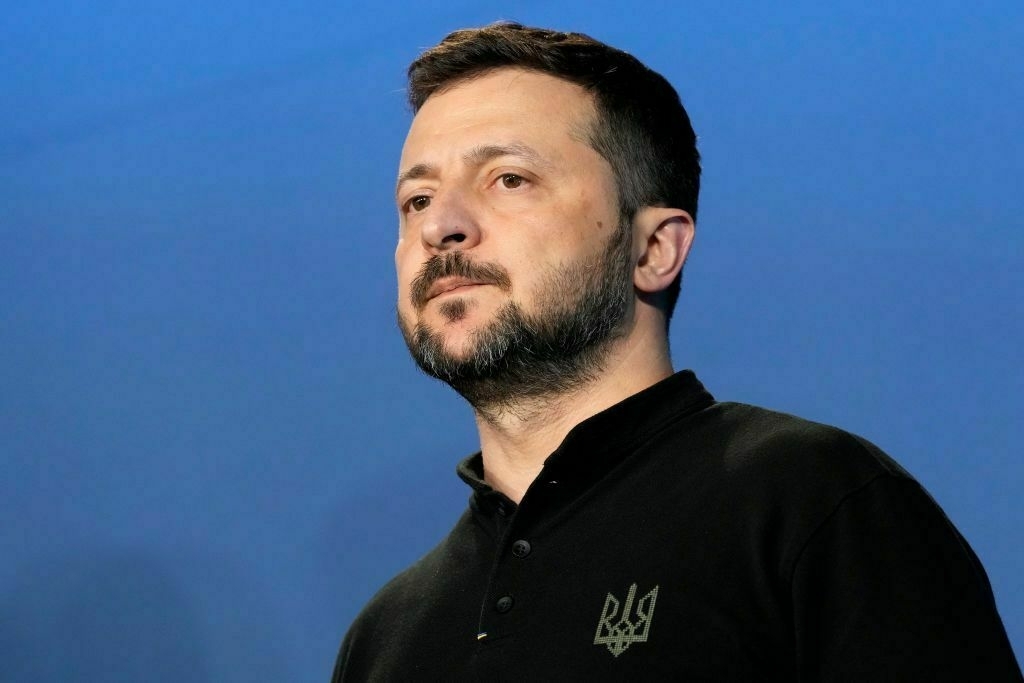
-
'If he does that, he's got some big problems' — Trump claims Zelensky wants to back out of minerals deal
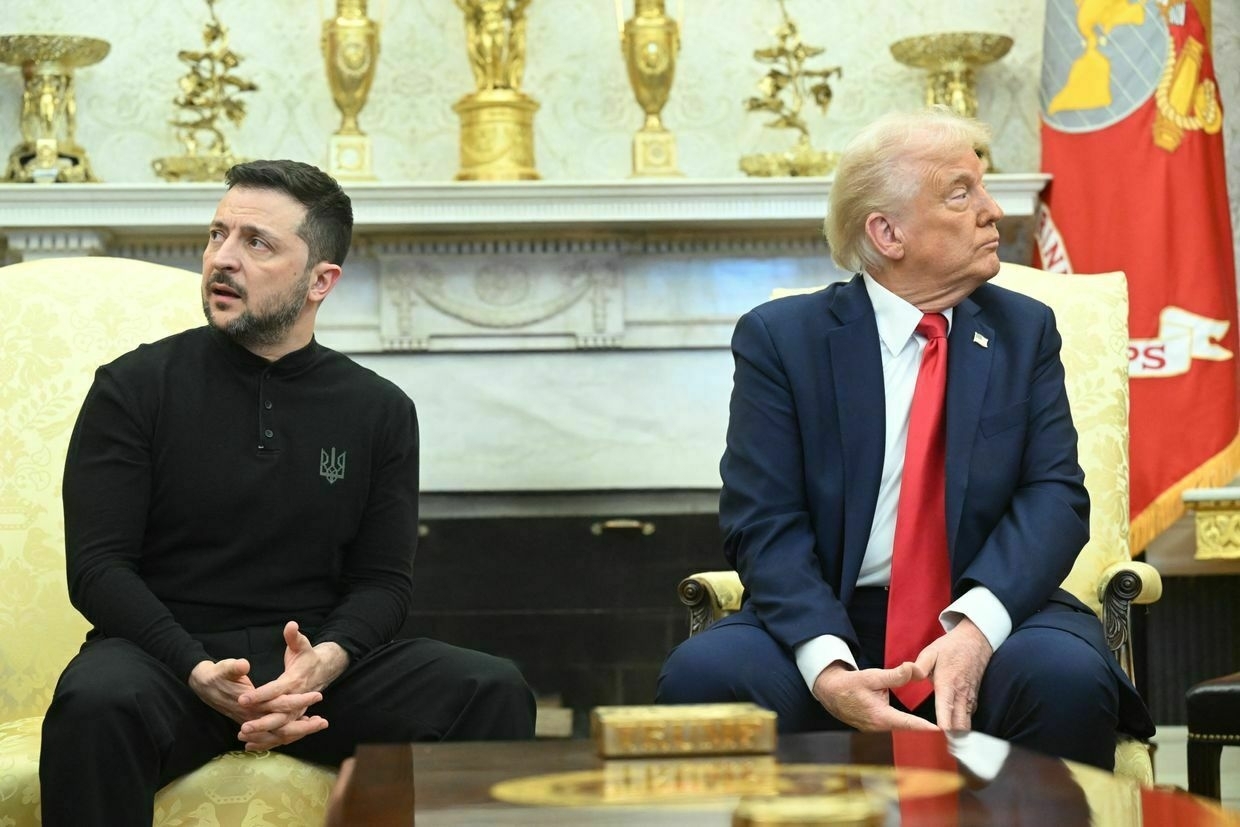
President Volodymyr Zelensky is looking to back out of a critical minerals agreement with the United States, U.S. President Donald Trump told reporters aboard Air Force One on March 30.
Ukrainian officials are currently reviewing the latest version of a minerals deal, which reportedly grants the U.S. unprecedented control over Ukraine’s natural resources through a joint investment fund.
Trump told reporters he believes Zelensky no longer wants to sign the agreement and warned that his refusal would carry consequences.
“He’s trying to back out of the rare earth deal and if he does that, he’s got some problems, big, big problems,” Trump said, according to Reuters.
“He wants to be a member of NATO, but he’s never going to be a member of NATO. He understands that."
Zelensky said on March 28 that he would not sign a minerals deal that interferes with Ukraine’s plans to join the European Union.
“Nothing that could threaten Ukraine’s accession to the EU can be accepted,” he said.
Bloomberg reported on March 29 that Kyiv was requesting changes to the current proposal, including greater investment from the U.S. and more clarity on how the joint fund would operate.
The Trump administration has touted the minerals deal as an essential part of Ukraine’s path to peace, but has failed to offer concrete security guarantees in exchange for broad access to resources. Kyiv and Washington were set to sign an earlier version of the agreement on Feb. 28, but the plan fell apart after a heated Oval Office dispute between Zelensky, Trump, and Vice President JD Vance.
The White House has described the minerals deal as a mechanism for the U.S. to “recoup” some of the financial aid it has provided to Ukraine since the start of Russia’s full-scale invasion.
Trump has also said he wants to explore a natural resources deal with Russia. Following a March 18 phone call with Russian President Vladimir Putin, Trump said the U.S. hoped to expand trade with Moscow and gain access to “very big forms of rare earth.”
Putin previously said on Feb. 24 that Russia is open to working with foreign partners on developing rare earth metals, including in occupied regions of Ukraine.
Trump says he’s ‘pissed off’ and ‘very angry’ at Putin in phone interview with NBC NewsU.S. President Donald Trump is reportedly “pissed off” and “very angry” regarding Russian President Vladimir Putin’s fixation over President Volodymyr Zelensky, NBC News reported on March 30.The Kyiv IndependentThe Kyiv Independent news desk
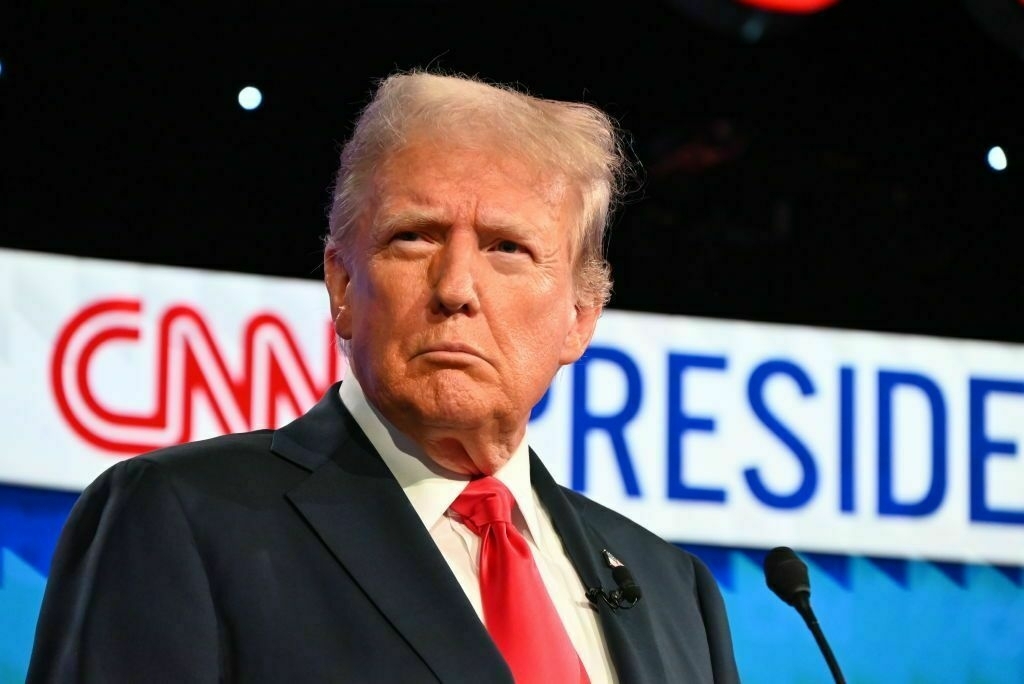
-
Starmer, Trump agree to keep up 'collective pressure' on Putin
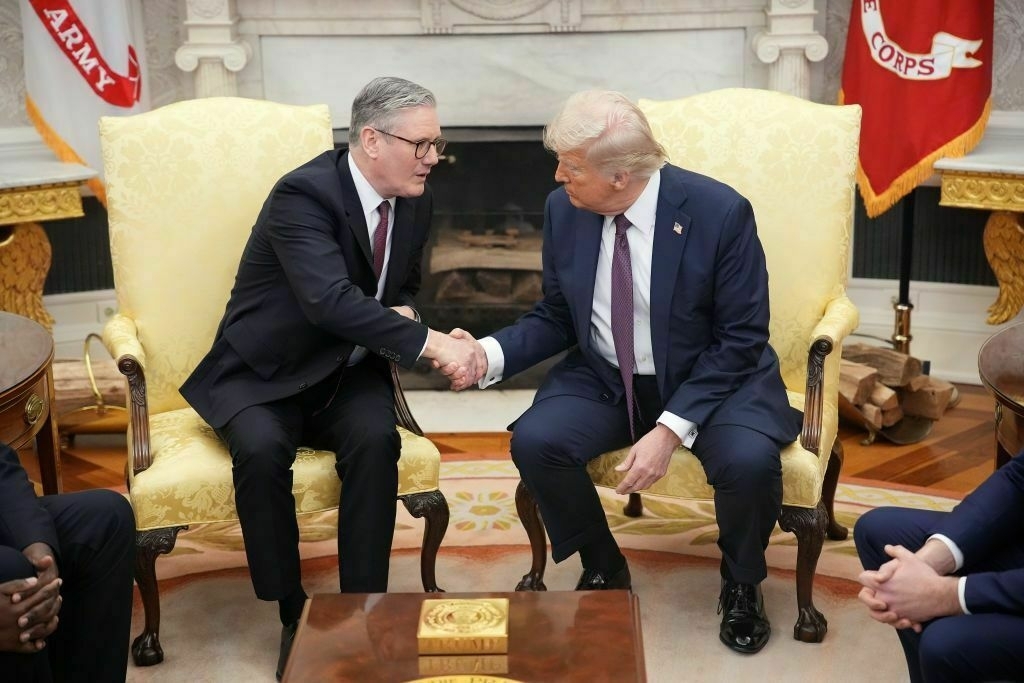
U.K. Prime Minister Keir Starmer and U.S. President Donald Trump reaffirmed their commitment to advancing a U.K.-U.S. economic prosperity deal during a call on March 30, agreeing that efforts would continue at pace in the coming days.
On Ukraine, Starmer briefed Trump on the recent meeting of the Coalition of the Willing in France, describing the discussions as productive. Leaders from 31 countries gathered in Paris on March 27 to coordinate military aid for Ukraine and outline steps toward a just and lasting peace.
Starmer and Trump also emphasized the importance of maintaining “collective pressure” on Russian President Vladimir Putin.
The comment followed Trump’s phone call with NBC, where he reportedly said that he is “pissed off and very angry” over Putin’s ongoing focus on President Volodymyr Zelensky.
Talking to NBC journalist Kristen Welker, Trump criticized Putin’s latest demand for a transitional government to replace Zelensky, saying that such comments are “not going in the right location."
Trump also warned that he would impose tariffs on Russian oil if he believes Moscow is obstructing progress toward a peace deal.
“If Russia and I are unable to make a deal on stopping the bloodshed in Ukraine, and if I think it was Russia’s fault — which it might not be — but if I think it was Russia’s fault, I am going to put secondary tariffs on oil, on all oil coming out of Russia,” Trump told NBC News.
“That would be that if you buy oil from Russia, you can’t do business in the United States. There will be a 25% tariff on all oil, a 25- to 50-point tariff on all oil.”
Despite the criticism, Trump noted that he maintains “a very good relationship” with Putin and added, “anger dissipates quickly … if he does the right thing.” He also said he plans to speak with the Russian leader again in the near future.
As Ukraine’s fate hangs in the balance, ‘Soviet’ command culture damages war effortLast February, a Ukrainian company commander going by his callsign Veter was ordered to send his people to reinforce another unit’s position over the next few hours. He was told that four National Guardsmen were holding the position on the other side of the village they were defending inThe Kyiv IndependentNatalia Yermak
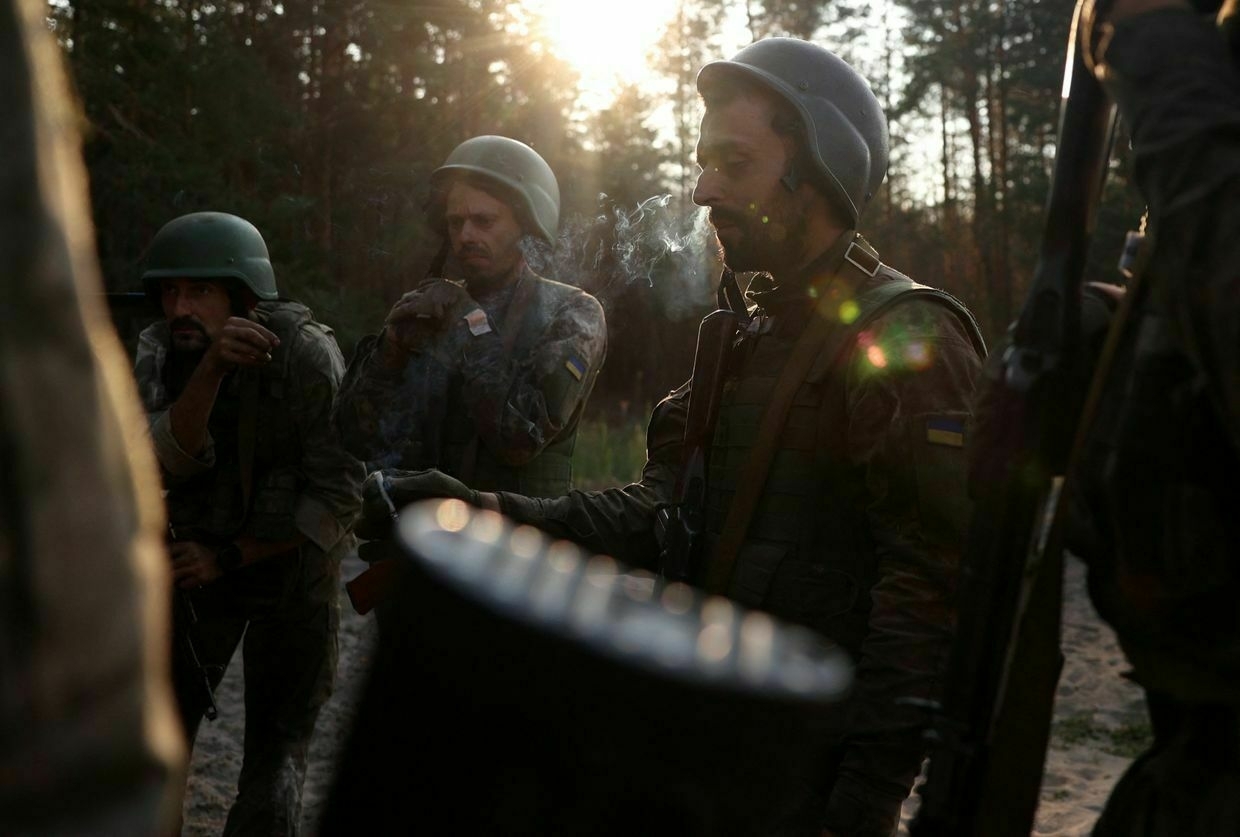
-
Finnish president pushes for April 20 ceasefire date in talks with Trump
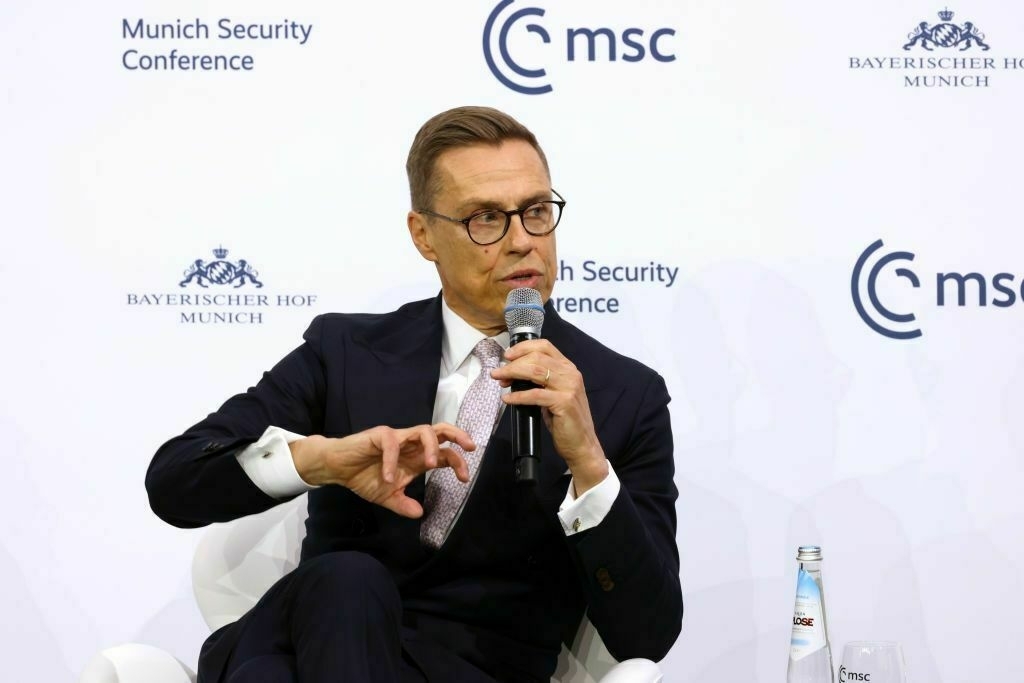
Finnish President Alexander Stubb suggested that April 20 is a “good time for a complete ceasefire without any conditions” in Ukraine, Yle reported on March 30.
"Finland’s proposal is April 20. That would be a good time for a complete ceasefire without any conditions. Why April 20? Because we need a deadline. Because it’s Easter. And because (U.S.) President (Donald) Trump will have been in office for three months," Stubb said.
According to Yle, Stubb also pushed for a strong sanctions mechanism to pressure Russia into compliance, revealing that U.S. Senator Lindsey Graham is preparing a sanctions package supported by 50 senators.
The Finnish president also noted that Trump’s frustration with Russia’s delays in ceasefire implementations are growing.
“He (Trump) is very impatient with Russia’s actions, with this collusion and delay in the ceasefire,” Stubb said. “I have the impression that patience is running out on the part of the United States as well — and that, in my opinion, is a good thing.”
These comments come after Stubb spoke with Trump about the war in Ukraine and other policy matters during a visit to Trump’s Mar-a-Lago residence in Florida on March 29.
Stubb’s visit was “unofficial,” according to a press release from the Finnish government. It involved breakfast, lunch, and a round of golf.
“During the visit, the Presidents discussed among other things the relations between Finland and the United States, and current foreign and security policy issues, including Ukraine,” the press release said.
Finland to lead international bomb shelter coalition for UkraineFinland will seek out more international partners to partake in the coalition and assist Ukraine in building shelters in the face of regular Russian aerial attacks. Ministers from Finland and Ukraine signed the agreement on March 19.The Kyiv IndependentVolodymyr Ivanyshyn
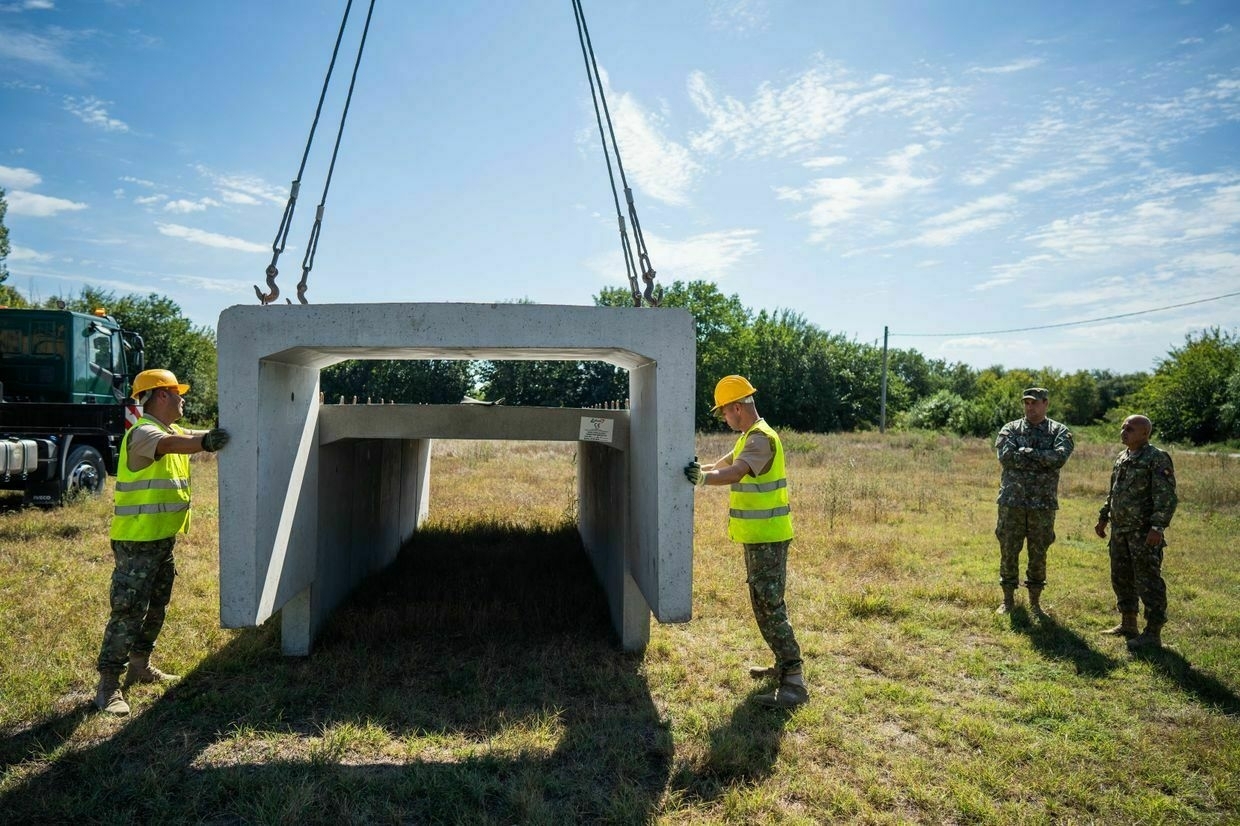
-
Trump fires nearly all staff at US peace institute, WP reports
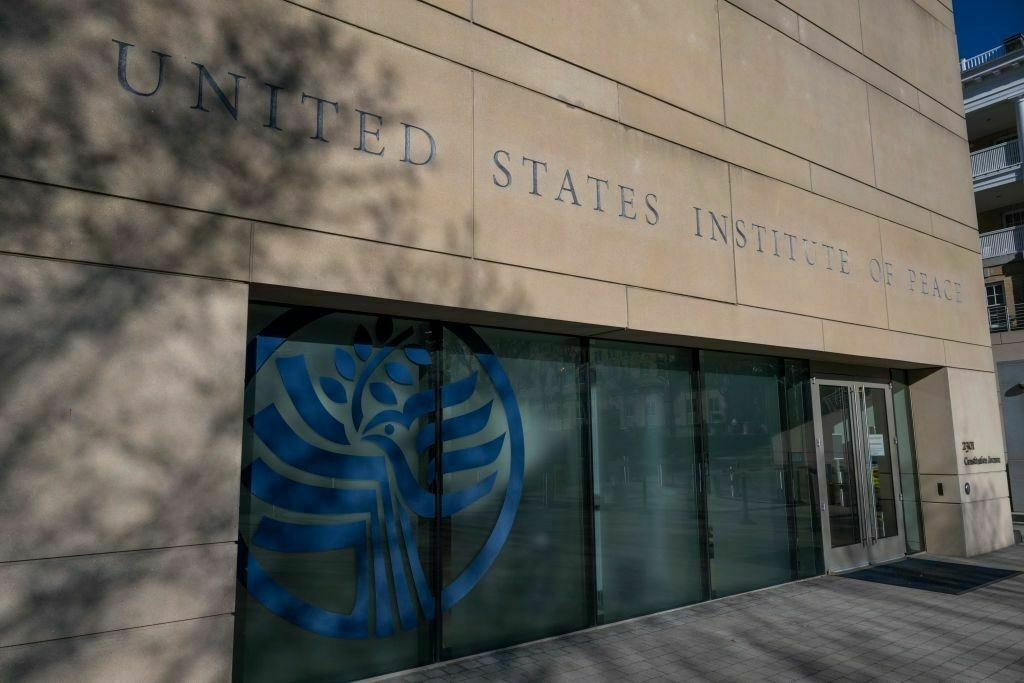
The White House dismissed nearly all staff at the U.S. Institute of Peace (USIP) headquarters in Washington, D.C. on March 29, the Washington Post (WP) reported.
The institute plays an active role in mediating conflicts and assisting with peace negotiations in war-torn countries, including Ukraine.
The Department of Government Efficiency (DOGE), an agency created by U.S. President Donald Trump, terminated between 200 and 300 employees at the institute’s headquarters, staff members told the WP on the condition of anonymity.
Most of the institute’s overseas staff remain in place, the WP reports.
Trump has granted DOGE broad latitude to slash budgets and fire federal workers in the name of eliminating waste. Headed by billionaire Elon Musk, the world’s richest man, DOGE has ordered mass firings and funding cuts despite ongoing legal challenges.
DOGE has previously targeted the U.S. Agency for International Development (USAID), U.S.-funded media outlets in Ukraine, and an initiative that tracked Russia’s forced deportation of Ukrainian children.
The USIP has a staff of around 600 people worldwide. Employees told the WP that the sudden dismissals would have an immediate effect on conflict zones.
“We put mediators in place to help stitch these communities back together,” one employee said.
“So it does have a dramatic effect on violence on the ground immediately by just pulling these assets out.”
The terminations come as the Trump administration continues its efforts to negotiate a peace agreement between Russia and Ukraine. Recent talks in Saudia Arabia resulted in a partial ceasefire on energy infrastructure attacks and operations in the Black Sea, though Kyiv has already accused Moscow of resuming strikes against energy facilities.
Thus far, only Ukraine has agreed to a U.S. proposal for a full 30-day ceasefire on all hostilities. Russia continues to refuse.
‘You can’t trust Russians’ — Europe’s Ukraine peacekeeping plans face one obvious hurdleStrong statements made after a summit of European leaders in Paris on March 27 demonstrated two things — France and the U.K. are determined to send peacekeepers to Ukraine, but the plans are currently hostage to the whims of the Kremlin. “You cannot trust the Russians any further than youThe Kyiv IndependentAlex Cadier
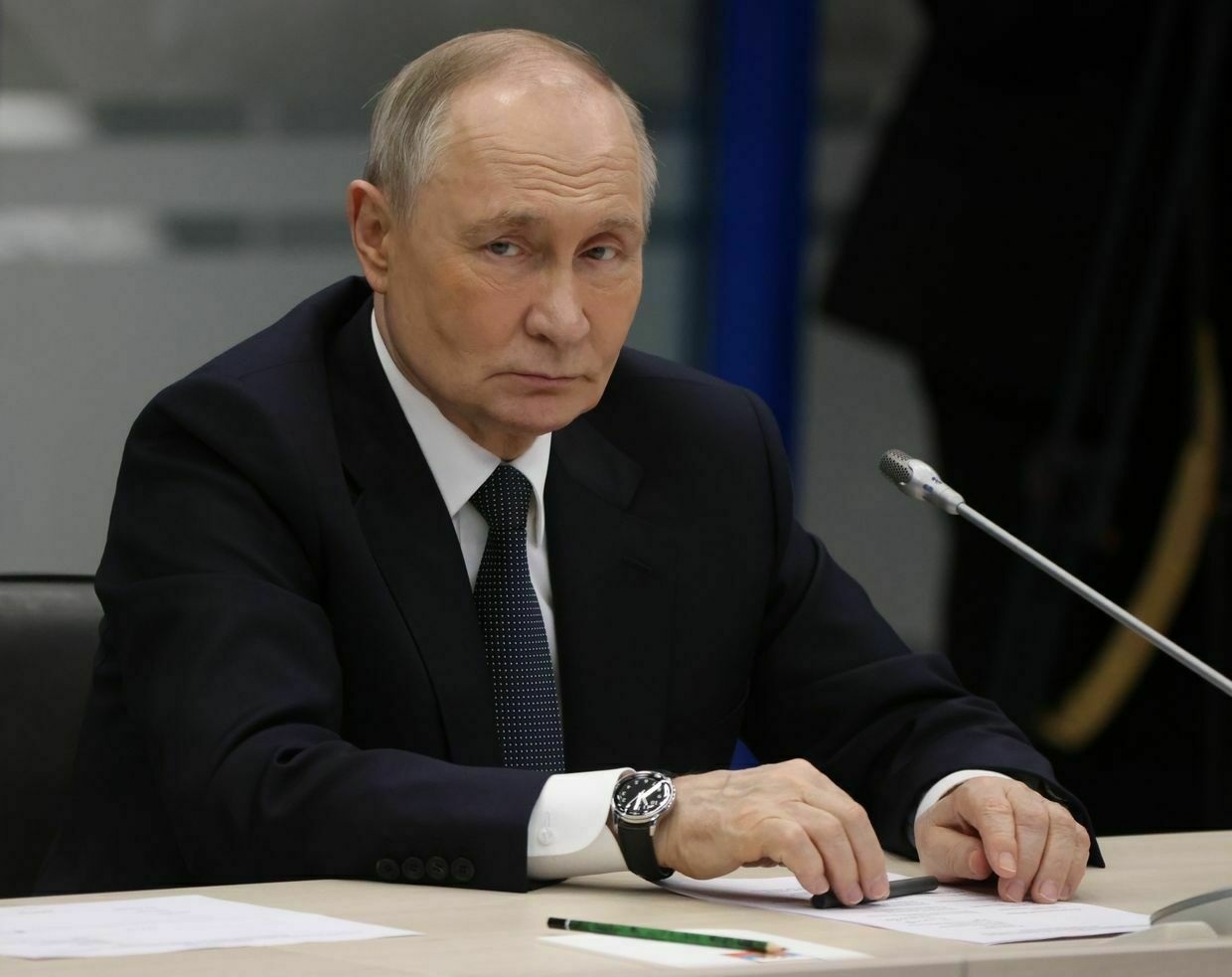
-
'We'll get Greenland,' Trump says as Denmark ramps up Arctic defense
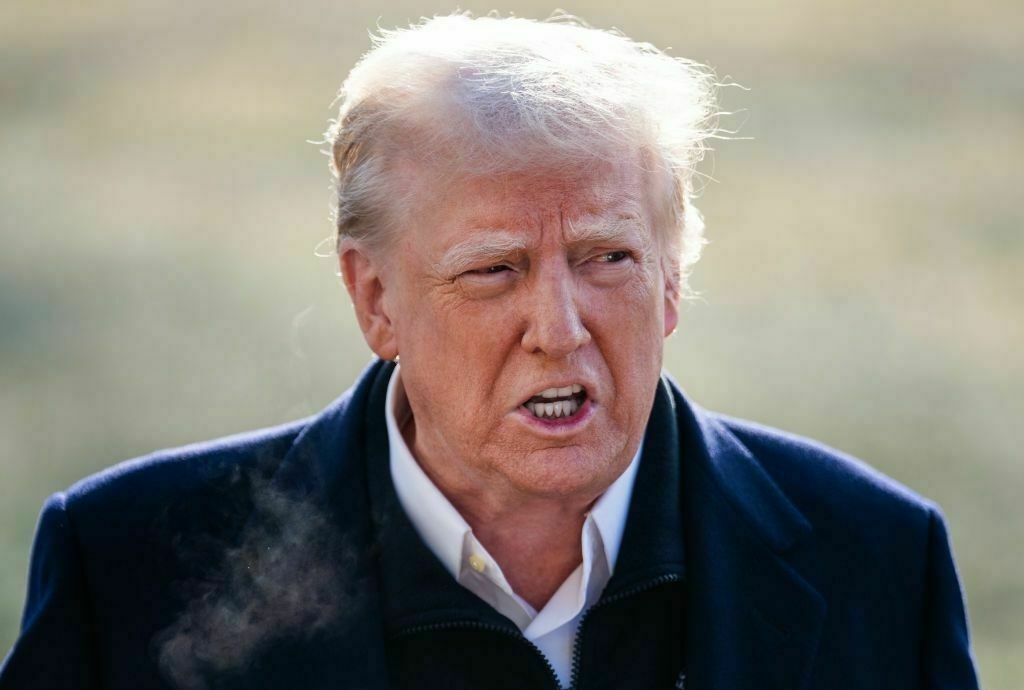
U.S. President Donald Trump doubled down on his intentions to acquire Greenland for the U.S. in an interview with NBC News on March 29.
“We’ll get Greenland. Yeah, 100%,” Trump said.
The comments come a day after U.S. Vice President JD Vance made a controversial visit to Greenland, an autonomous territory of Denmark. In remarks to servicemembers at an American military base, Vance criticized Danish stewardship of the Arctic island and suggested Greenland would be safer under the U.S.
Danish Prime Minister Mette Frederiksen said Vance’s remarks were “not accurate.”
Speaking to NBC News on March 29, Trump said a U.S. military takeover of Greenland was not off the table.
There is a “good possibility that we could do it without military force,” Trump said, but added that “I don’t take anything off the table."
When asked what message the annexation of Greenland would send to Russia, which has been illegally occupying Ukrainian lands since 2014, Trump said that was not a concern.
“I don’t really think about that. I don’t really care. Greenland’s a very separate subject, very different. It’s international peace. It’s international security and strength,” he said.
“You have ships sailing outside Greenland from Russia, from China and from many other places. And we’re not going to allow things to happen that are going to be — that are going to hurt the world or the United States.”
Trump also on March 29 announced that the U.S. would purchase icebreaker vessels from Finland, following an unofficial visit with Finnish President Alexander Stubb at his Mar-a-Lago residence in Florida.
The icebreakers are critical to Trump’s plans to expand U.S. influence in the Arctic region.
Greenland is home to both Danish and U.S. military bases as well as vast reserves of mineral wealth. Denmark, a NATO member state and traditional U.S. ally, has pledged to increase defense spending in the Arctic in response to threats from Russia and Trump’s worrying rhetoric.
"(I)t is true that security in the Arctic must be given higher priority,” Frederiksen wrote on social media following Vance’s visit to Greenland.
“That is why Denmark is now strengthening our efforts. With more surveillance, new Arctic ships, long-range drones and satellite capacity. … Greenland is part of NATO, which is why NATO needs to significantly increase its presence in the Arctic."
Denmark is ready to cooperate with the U.S., Frederiksen said, adding that their cooperation “must be based on the necessary international rules of the game.”
In the weeks leading up to his second presidential inauguration, Trump publicly floated the idea of a U.S. takeover of Greenland, Canada, and the Panama Canal. In comments to reporters on Jan. 7, he refused to rule out the possibility of using military force to seize Greenland, which he said the U.S. needs for “economic security."
Trump’s expansionist ambitions and disregard for state sovereignty carry alarming implications, particularly for Ukraine as it fights to restore its territorial integrity amid Russia’s ongoing invasion.
Russian President Vladimir Putin on March 27 said that Trump was serious about his plans to acquire Greenland for the U.S. and alleged that the plan had “historical roots.” Previously, the Kremlin said it was monitoring developments regarding Trump and Greenland due to Russia’s own “strategic interests” in the Arctic region.
‘You can’t trust Russians’ — Europe’s Ukraine peacekeeping plans face one obvious hurdleStrong statements made after a summit of European leaders in Paris on March 27 demonstrated two things — France and the U.K. are determined to send peacekeepers to Ukraine, but the plans are currently hostage to the whims of the Kremlin. “You cannot trust the Russians any further than youThe Kyiv IndependentAlex Cadier
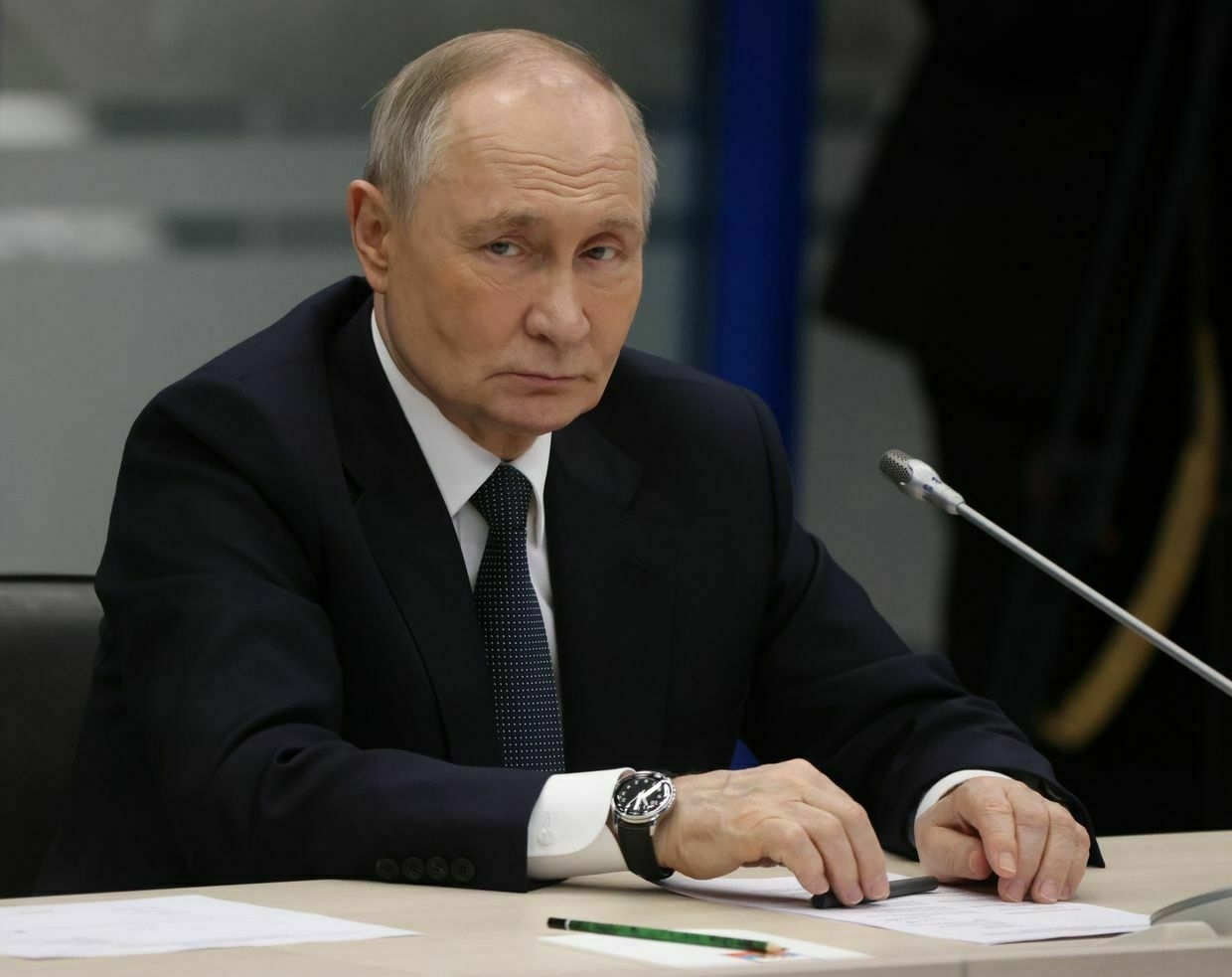
-
Finland's Stubb plays golf with Trump, discusses war in Ukraine
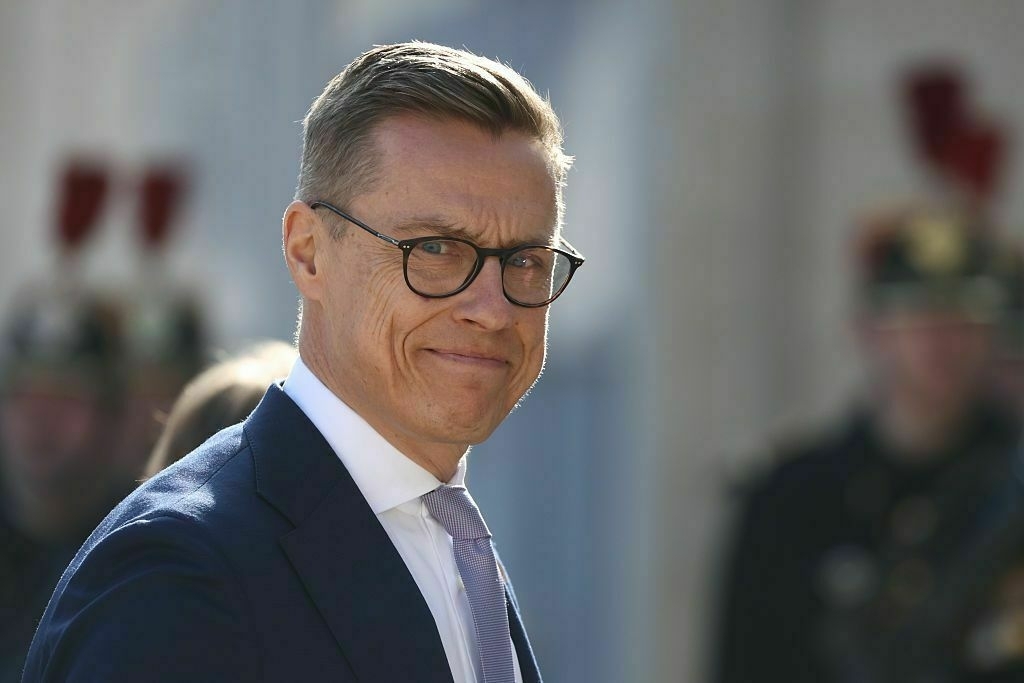
Finnish President Alexander Stubb spoke with U.S. President Donald Trump about the war in Ukraine and other policy matters during a visit to Trump’s Mar-a-Lago residence in Florida on March 29.
Stubb’s visit was “unofficial,” according to a press release from the Finnish government. It involved breakfast, lunch, and a round of golf.
“During the visit, the Presidents discussed among other things the relations between Finland and the United States, and current foreign and security policy issues, including Ukraine,” the press release said.
The statement did not include any details on the substance of the leaders' policy discussions. In a recent interview with France 24, Stubb praised Trump’s efforts to bring about a ceasefire in Ukraine but expressed skepticism towards Russia.
“But never underestimate the capacity of Russians to break a ceasefire. They’ll continue to do it,” he said.
Following his meeting with Stubb, Trump announced that the U.S. would purchase Finnish icebreaker vessels.
“President Stubb and I look forward to strengthening the partnership between the United States and Finland,” Trump wrote in a post on the social media platform Truth Social.
“That includes the purchase and development of a large number of badly needed icebreakers for the U.S."
The icebreakers are critical to Trump’s plans to expand U.S. power over the Arctic. The purchase announcement comes a day after U.S. Vice President JD Vance made a controversial visit to Greenland, an autonomous Danish territory Trump has threatened to annex.
Trump reiterated those ambitions on March 29 in an interview with NBC News.
“We’ll get Greenland. Yeah, 100%,” he said.
Trump said there was a “good possibility that we could do it without military force,” but refused to rule out a military takeover.
“I don’t take anything off the table,” he said.
Russian President Vladimir Putin on March 27 said that Trump was serious about his plans to acquire Greenland for the U.S. and alleged that the plan had “historical roots.” Previously, the Kremlin said it was monitoring developments regarding Trump and Greenland due to Russia’s own “strategic interests” in the Arctic region.
Russia also has a strategic interest in defending illegal annexations of sovereign foreign territory, given its ongoing occupation of Ukrainian regions, including Crimea.
With peace talks underway, Ukrainian political veterans align themselves with TrumpUkrainian political veterans long out of power have emerged as a new source of pressure on Ukraine’s political leadership. Following the clash in the Oval Office between President Volodymyr Zelensky and his U.S. counterpart, Donald Trump, the White House began to look for ways to subdue Zelensky.…The Kyiv IndependentKateryna Denisova
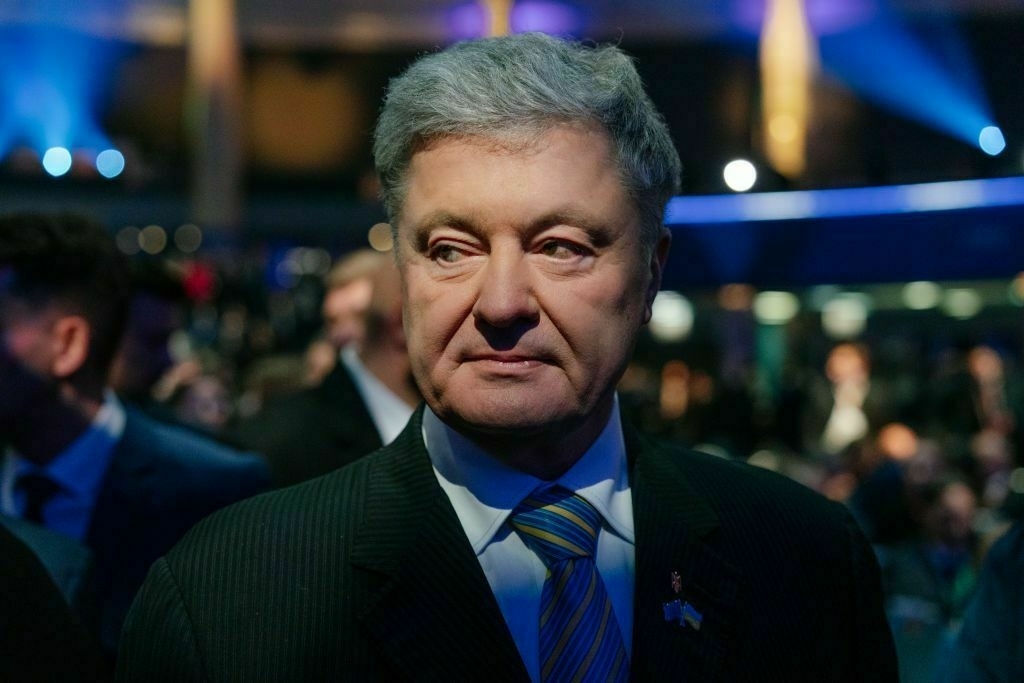
-
"I Believe Trump Really Wants to End This War" – William Taylor on UATV
-
Russia delays peace talks with Ukraine, prepares for new offensive
Russia is delaying peace negotiations with Ukraine and seems to be planning a new offensive, according to statements by Grigory Karasin, the head of the Russian Federation Council's International Affairs Committee. Karasin, who participated in indirect talks held in Saudi Arabia, suggested that significant progress in resolving the conflict in Ukraine is unlikely in the near future.
Karasin believes that a ceasefire agreement will not be reached this year. He described the recent meetings as calm and constructive but "not very productive." "I assume such meetings will continue, and new tasks will be assigned to our group by our country's leadership," Karasin said, as quoted by the Russian news outlet RBC. The senator also highlighted key topics in the negotiations between the Russian and U.S. delegations, including security issues in the Black Sea, the resumption of Russian agricultural exports, and reconnecting the Russian Agricultural Bank to the SWIFT system.
Meanwhile, the European Union has rejected Russia's demands for easing sanctions as part of the proposed agreement. U.S. President Donald Trump speculated that Russia might be intentionally dragging out signing a ceasefire agreement with Ukraine. "I don't know. But I think Russia wants to end this war, but maybe they are stalling," Trump said on March 25th.
At the same time, Russian troops are reportedly preparing for a new offensive in the coming weeks, aiming to increase pressure on Ukraine and strengthen the Kremlin's negotiating position, according to the Associated Press. Analysts and Ukrainian military commanders say the Kremlin is planning a multi-pronged offensive along the entire frontline, as noted in the publication. "They are stalling the talks, trying to trap the U.S. in endless, meaningless discussions over new terms to buy time, and then attempt to seize more territory," the report quotes Ukrainian President Volodymyr Zelensky.
-
Russian negotiator suggests ceasefire may not be reached in 2025
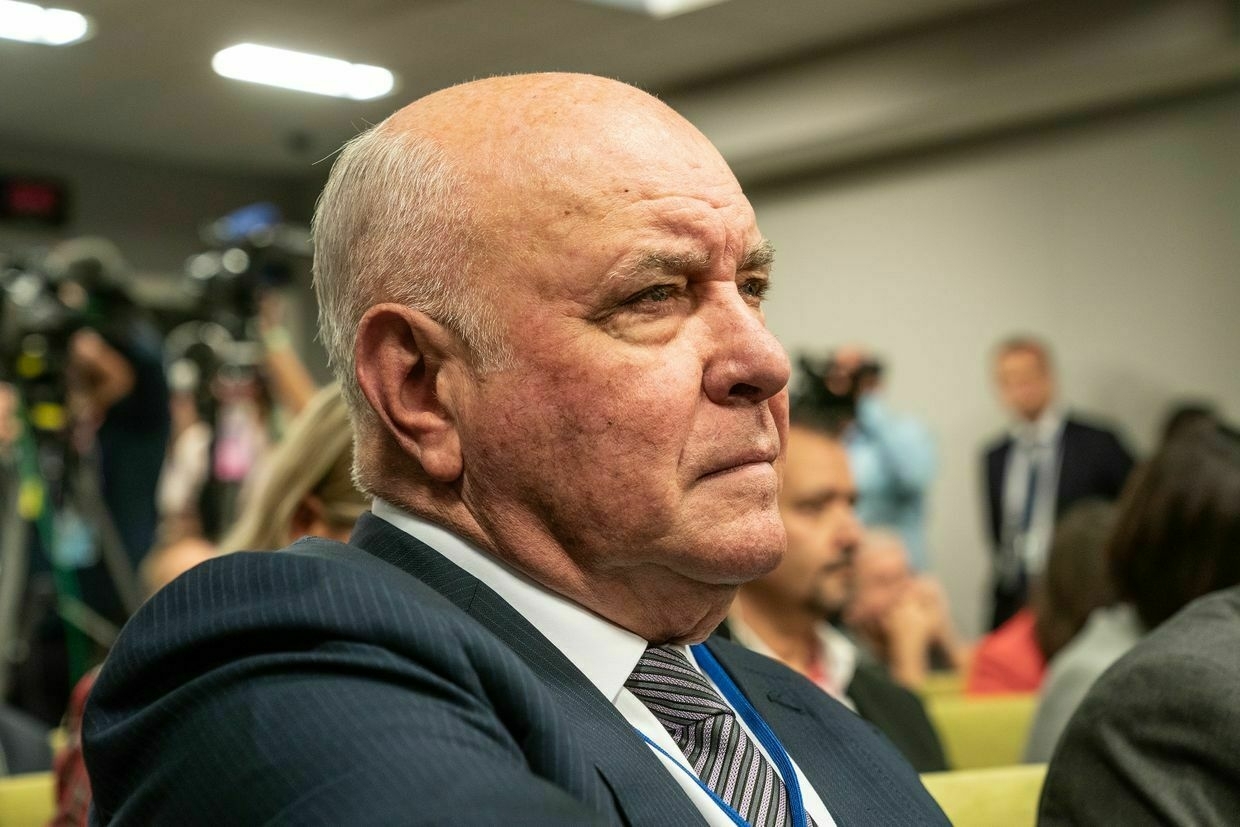
Russian negotiator Grigory Karasin cast doubt on the Trump administration’s efforts to broker a quick ceasefire in Ukraine, saying on March 28 that the talks with the U.S. may not yield decisive results this year.
Karasin led the Russian delegation that held the 12-hour-long technical consultations with the U.S. in Riyadh on March 24. These talks led to an agreement on a partial ceasefire covering strikes against energy infrastructure and Black Sea operations.
The Russian official described the meeting with the U.S. delegation as “constructive” but acknowledged limited results, suggesting that the consultations will continue. When asked about the timeline for clear results in the negotiations, he said they might not come “this year or at the end of this year."
“It would be naive to expect any breakthrough results at the very first meeting,” Karasin, chairman of Russia’s Federation Council Committee on International Affairs, said in an interview with the state-owned TV channel Rossiya-24.
Kyiv has already accused Russia of violating the energy ceasefire, while the future of the Black Sea ceasefire is in doubt as Moscow has linked it to the lifting of Western sanctions on Russian food producers and some financial institutions.
Moscow previously rejected a full 30-day truce agreed upon by the U.S. and Ukraine in Jeddah on March 11 unless it included conditions undermining Ukraine’s ability to defend itself, including a full halt on foreign military aid.
U.S. President Donald Trump has repeatedly declared he would broker a swift deal to end Russia’s full-scale war against Ukraine, which has been ongoing for more than three years. His administration briefly halted all military assistance to Ukraine to push it to the negotiating table while exerting little pressure on Russia.
Trump acknowledged on March 25 that Russia may be “dragging their feet” in peace talks, while Kyiv and other observers warn that Moscow intentionally prolongs the process to allow Russian forces to capture more territory.
Russia preparing new offensive in ‘coming weeks’ to strengthen negotiating position, AP reportsRussia is likely preparing to launch a new offensive in the coming weeks to strengthen its position in possible peace talks with Ukraine, the Associated Press (AP) reported on March 29, citing Ukrainian analysts and two undisclosed G7 diplomatic sources.The Kyiv IndependentMartin Fornusek
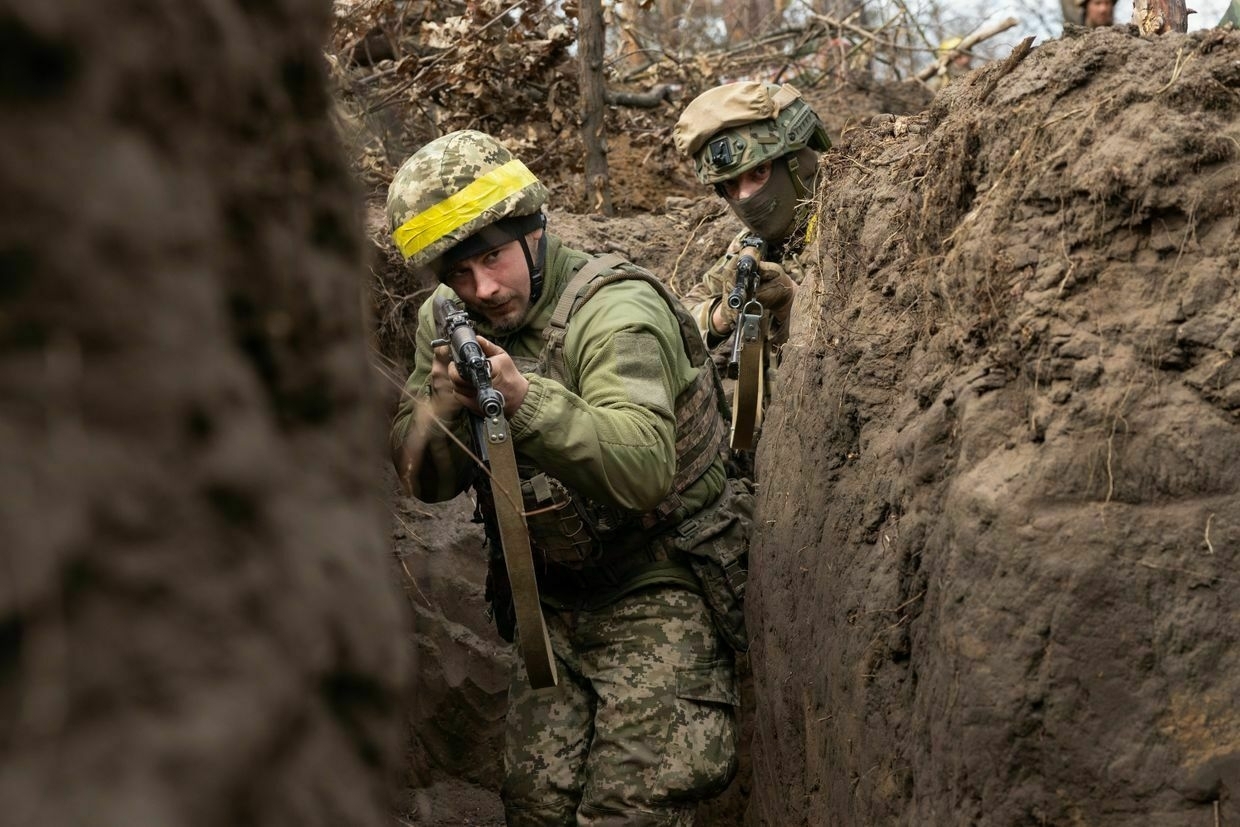
-
'You can't trust Russians' — Europe's Ukraine peacekeeping plans face one obvious hurdle
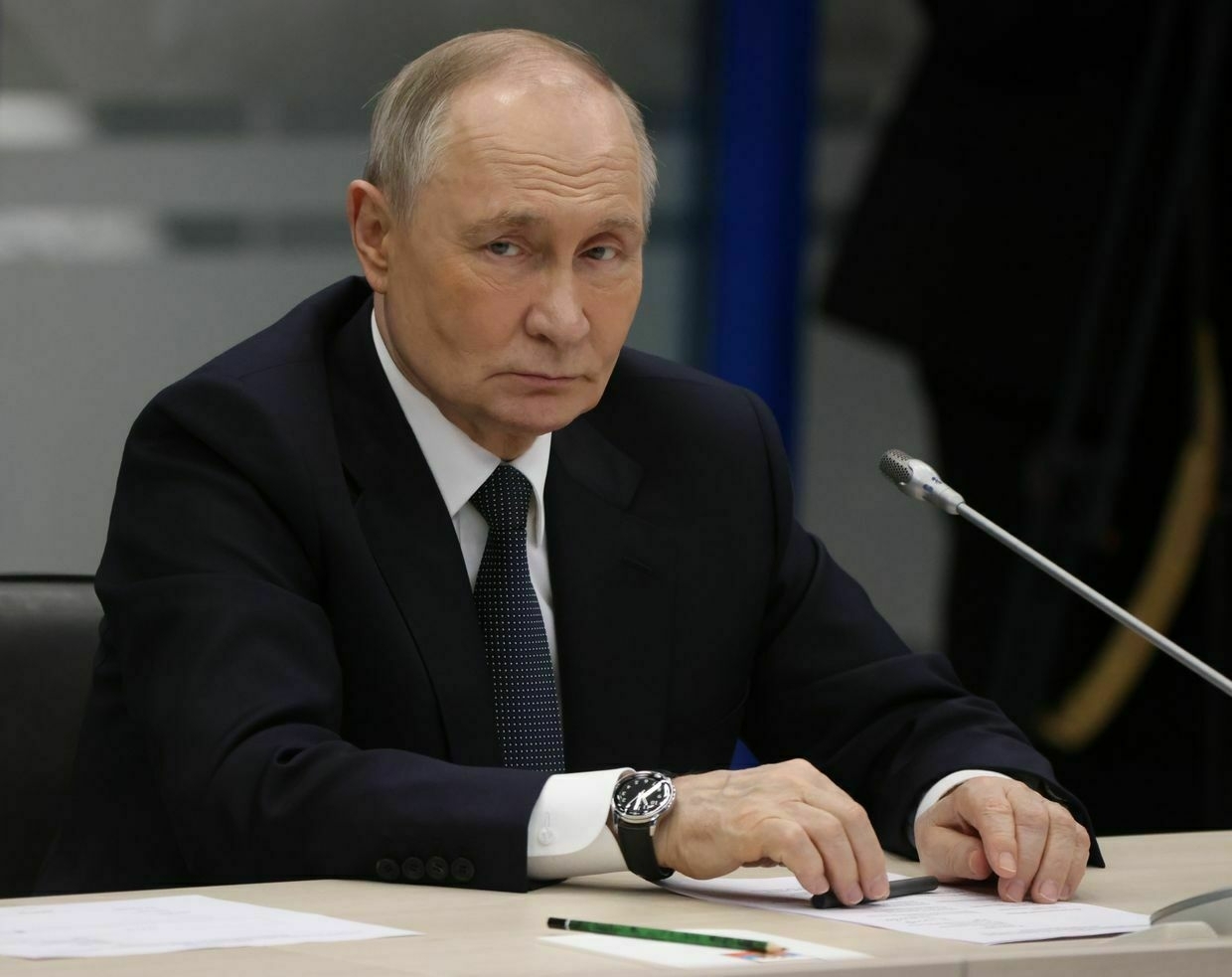
Strong statements made after a summit of European leaders in Paris on March 27 demonstrated two things — France and the U.K. are determined to send peacekeepers to Ukraine, but the plans are currently hostage to the whims of the Kremlin.
“You cannot trust the Russians any further than you can throw them today, and that really is going to be the blockage in the negotiation process for all parties,” Dr. Ian Garner, assistant professor in totalitarian studies at Poland’s Pilecki Institute, told the Kyiv Independent.
In the face of a retreating U.S., several European countries have moved forward with plans to send troops to Ukraine as part of a “reassurance force” in case of the ceasefire with Russia, French President Emmanuel Macron announced at the Paris summit.
Any potential force deployed would be “a force designed to deter, in order to send that message to (Russian President Vladimir) Putin that this is a deal that is going to be defended,” U.K. Prime Minister Keir Starmer added.
But at the same time, Starmer acknowledged the obvious impediment to what is needed in order to put the plan into action — an actual peace deal.
“We agreed here in Paris today that it’s clear the Russians are filibustering. They are playing games, and they’re playing for time,” he said.
“It is a classic from the Putin playbook, but we can’t let them drag this out while they continue prosecuting their illegal invasion."
French and British military planners will head to Ukraine to start coordinating with the country’s Armed Forces on how this “reassurance force” could be deployed but a major hurdle will be planning such an operation whilst not knowing what kind of peace they will be there to enforce.
Separate negotiations with the U.S. have so far not yielded a clear plan for peace. Despite Ukraine’s endorsement of a U.S. plan for a full 30-day ceasefire, Russia has so far refused, instead added conditions, including the lifting sanctions, for its participation, while only agreeing to partial ceasefires on energy infrastructure and the use of force in the Black Sea.
At the summit in Paris, President Volodymyr Zelensky said that Russia’s demands shows that “Russia does not seek real peace today and is dragging out the war,” urging Ukraine’s European partners to ramp up the pressure on the Kremlin.
His view was echoed by Macron, who said that while Kyiv has “taken the risk of peace,” Moscow’s demands in negotiations showed a “desire for war."
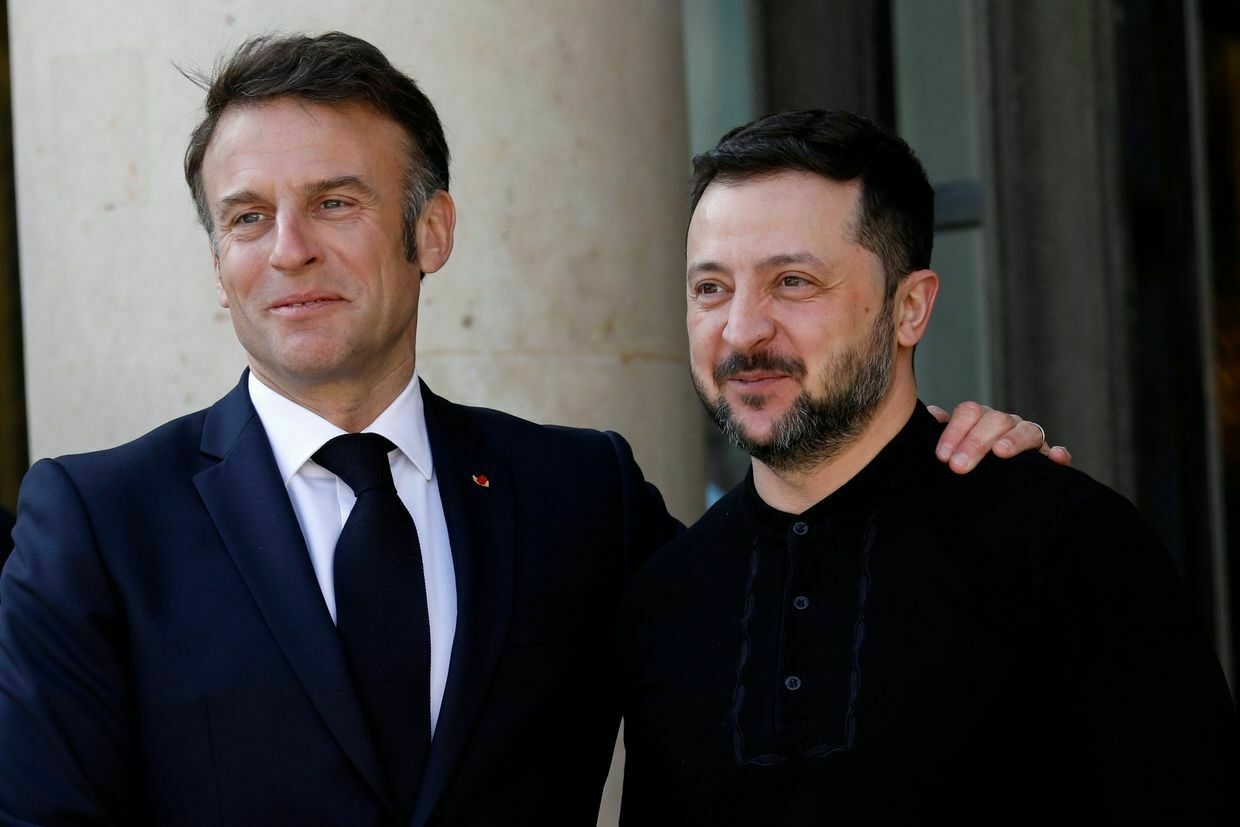
President Volodymyr Zelensky is greeted by French President Emmanuel Macron ahead of the ‘Coalition Of The Willing’ summit in support of Ukraine at Elysee Palace on March 27, 2025 in Paris, France. (Antoine Gyori - Corbis/Corbis via Getty Images) German Chancellor Olaf Scholz, whose approach to supporting Ukraine has drawn criticism in the past, said “we have seen how the negotiations have gone so far, and Russia has added new demands after each round."
“This clearly demonstrates that Russia is currently not interested in real peace,” he added.
Garner said the issue is hardly new given Russia’s aggression against Ukraine dates back to 2014.
“The problem… is on the Russian side. I don’t see much enthusiasm coming from the Kremlin for signing anything more than a paper thin ceasefire that either would or could lead back to war or an attempt to exert control over Ukraine through non-military means,” he added.
The risk of a full ceasefire being imposed with conditions favorable to Russia remains a real concern among Europe’s leaders, particularly with a White House that appears to favor rapid results over a just and lasting peace for Ukraine.
“A ceasefire could be possible as it might provide Putin an ability to recuperate Russia’s losses and wait and see which way the ‘negotiations’ might go,” Gabrielius Landsbergis, Lithuania’s former foreign minister, told the Kyiv Independent.
Landsbergis added that Putin sees a ceasefire as possible leverage “to rebuild his stance in the world."
“Maybe some sanctions will be removed or some other benefits could come his way,” he added.
European leaders have so far ruled out any sanctions relief, or promise of sanctions relief, but the U.S. notably has not.
What is beyond doubt is that the biggest deciding factor in how peace will be shaped in Ukraine will be how the U.S. handles the ongoing negotiations.
As Ukraine, Russia agree to ceasefire at sea, Moscow’s battered Black Sea Fleet is set to get a reprieveThe White House on March 25 announced that Ukraine and Russia had agreed to “eliminate the use of force” in the Black Sea, returning the spotlight to a theater of battle that has been relatively quiet for more than a year. Throughout 2022 and 2023, Ukrainian strikes against Russian ships,The Kyiv IndependentMartin Fornusek
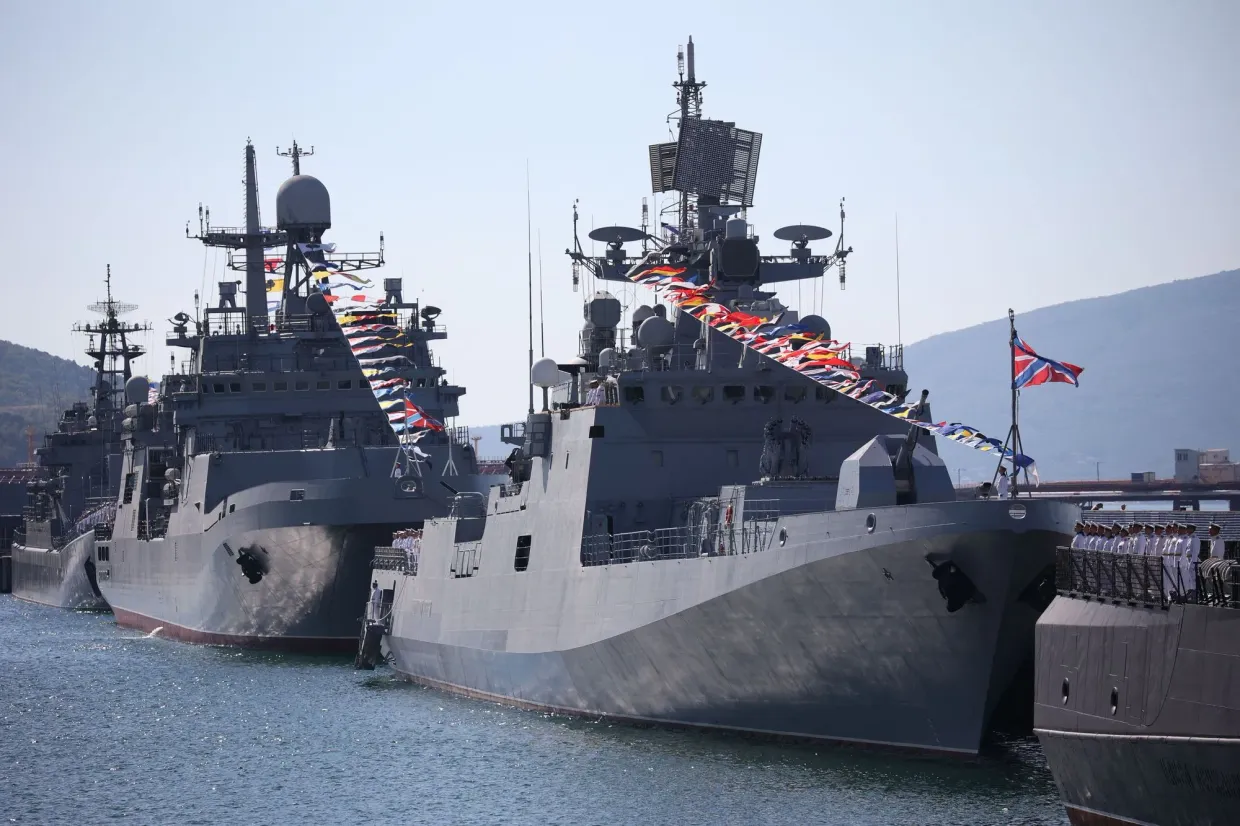
Richard Haas, former director of policy planning at the U.S. State Department, told the Kyiv Independent that “a full ceasefire between Ukraine and Russia is a realistic prospect if the United States demonstrates its willingness to provide meaningful long-term military and intelligence support to Ukraine for its defense.”
“Such support is essential if Putin is to understand that time is not on his or Russia’s side,” he added.
Haas said that any deal cannot be based on trusting Moscow’s intentions. “It must be built on strength so that Putin determines, however reluctantly, that continued war will not achieve Russia’s objectives in Ukraine and could weaken Russia in the process."
For that, the former top diplomat said Europe will need to step up.
“Europe’s role becomes far more important if the United States chooses to reduce or end its support of Ukraine,” he said.
Many have doubted the administration of U.S. President Donald Trump’s support of Ukraine, as well as the competence of presidential appointees, particularly after top Trump officials, including his vice president, national security advisor and defense secretary discussed highly sensitive military plans on a group chat where a journalist has inadvertently been added.
“Donald Trump’s American negotiating party seems to me to be inexperienced and credulous in the way they are dealing with the Kremlin,” Garner said.
“The Putin regime is spinning different stories to different parties. It’s telling its public one thing and the Western public another. It is continually attacking and threatening Ukraine. There is no sign that the state is stepping back from its attacks."
While the Kremlin has agreed to partial ceasefires on energy infrastructure and the use of force in the Black Sea, its devastating bombing of Ukraine’s cities continues.
In the latest instance, a Russian drone attack on March 28 killed four people and injured at least 24 in the city of Dnipro, sparking a large fire at a hotel and restaurant complex as well as 11 homes.
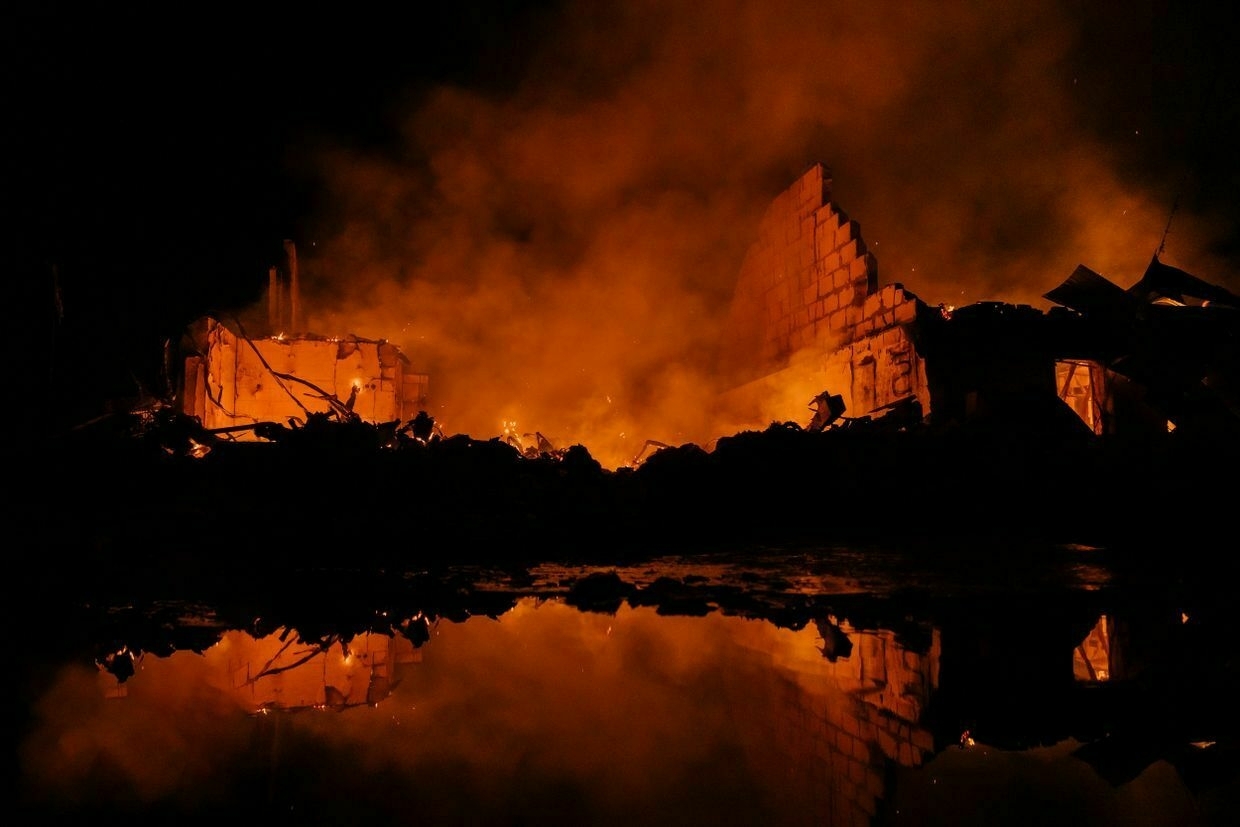
Smoke rises following a Russian kamikaze drone attacks on Dnipro, Ukraine on March 29, 2025 (Kherson Regional Military Admin./Anadolu via Getty Images) Despite Ukraine’s willingness to sign up to a full ceasefire, and Russia’s refusal and ongoing attacks against civilians, Landsbergis said things are still headed in Moscow’s favor.
“It all depends on if the U.S. is prepared to give Putin everything he asks for and so far that seems to be the case,” he said.
There is also the issue of European unity, which will be crucial to any European-led peacekeeping force.
Italian Prime Minister Giorgia Meloni has expressed skepticism about sending European troops to Ukraine, warning that Moscow could see this as a provocation.
Garner warned that only a cohesive European force could work as a real deterrent against further Russian aggression.
“Ukraine’s biggest supporter in Europe in terms of size, Poland, has been pretty dubious about actually putting Polish troops on the ground,” he said.
“If Poland were to change its mind, I think others might follow but without Poland, I don’t think it’s realistic."
Macron has said that plans for Europe’s reassurance force for Ukraine would take shape in the next “three to four weeks,” but the biggest challenge remains — whatever shape it takes, it is still aiming at a moving target as U.S.-led peace negotiations continue to falter.
As Ukraine’s fate hangs in the balance, ‘Soviet’ command culture damages war effortLast February, a Ukrainian company commander going by his callsign Veter was ordered to send his people to reinforce another unit’s position over the next few hours. He was told that four National Guardsmen were holding the position on the other side of the village they were defending inThe Kyiv IndependentNatalia Yermak
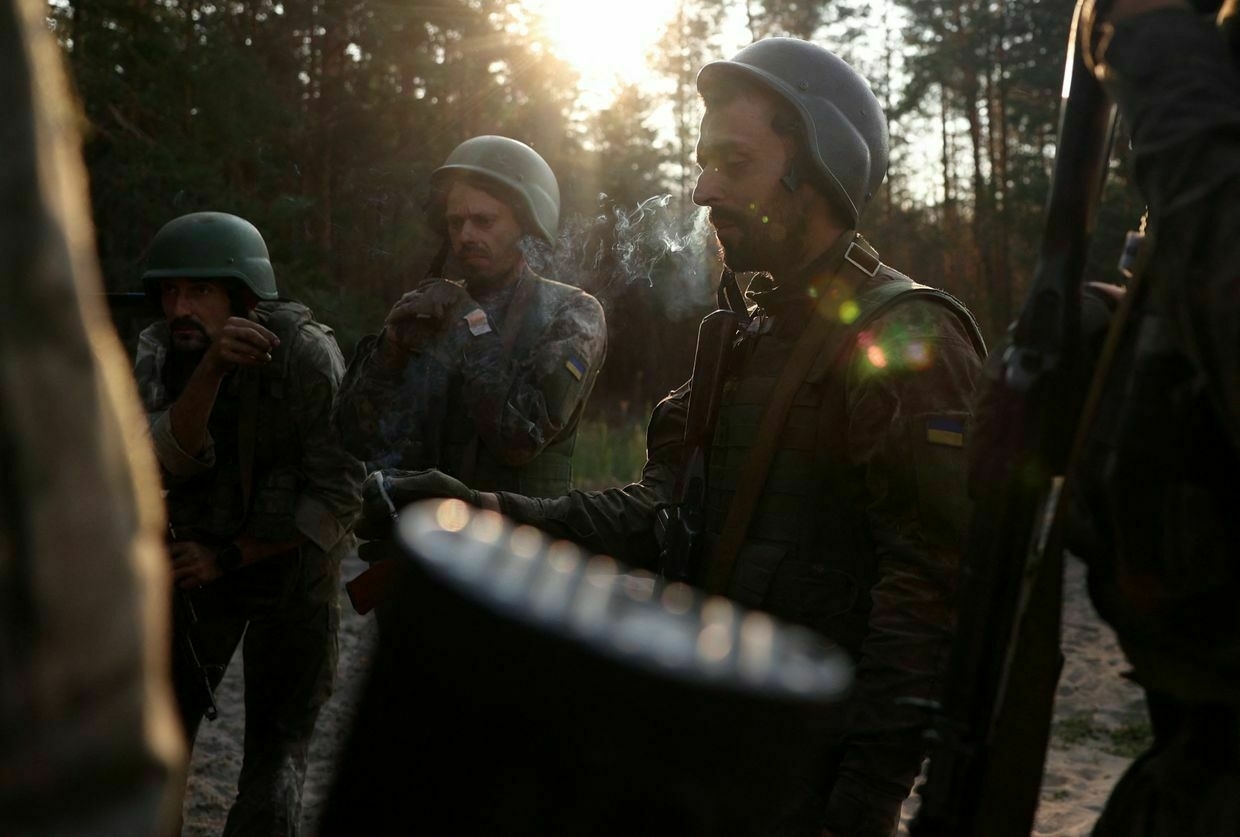
-
An offer to refuse: Trump demands control over Ukraine's economy
The Trump administration is urging Ukraine to sign an agreement that could grant Washington significant control over critical economic projects. According to a report by The Wall Street Journal, the proposed document, which has been sent to Kyiv, seeks to give the U.S. first dibs on participating in infrastructure and mineral extraction projects, including rare earth metals and port construction.
This proposal includes the establishment of a fund predominantly managed by American representatives, intended to direct profits toward repaying the military assistance provided by Washington to Kyiv. However, Ukrainian authorities express concern that the agreement could hinder their ability to attract other investors and rebuild infrastructure. Analysts warn that these new U.S. demands might exacerbate tensions, particularly following the recent conflict between Trump and Ukrainian President Volodymyr Zelensky. Should the deal come to fruition, Ukraine will have 45 days to present a list of projects to be evaluated by the fund.
"The Trump administration is pushing for Ukraine to swiftly sign a new agreement that would hand Washington extensive authority over its ally’s economy," the publication notes. "The problem is, Ukraine is almost certainly unable to accept these terms." Furthermore, The Wall Street Journal suggests that "Trump's new plan for Ukraine seems like an offer that must be refused."
Meanwhile, The Daily Telegraph highlights that the latest version of the deal proposes U.S. control over half of Ukraine's oil and gas reserves, its metals, and much of its infrastructure, including railways, ports, pipelines, and refineries via a joint investment fund.
Three members of the fund's supervisory board would be appointed by Washington. Additionally, under U.S. plans, all profits would be redirected until Ukraine repays at least $100 billion for military aid, with an added 4% margin. Kyiv would begin receiving 50% of profits only after the debt is settled. The fund would be registered in Delaware but operate under New York jurisdiction. According to the deal's terms, the U.S. would gain veto power on the sale of Ukrainian resources to third countries and the right to audit any Ukrainian ministry's accounts.
Earlier reports suggest that the White House rejected President Vladimir Putin's proposal for a temporary external administration in Ukraine under the aegis of the UN and Western countries. A U.S. National Security Council representative told Reuters that "the system of governance in Ukraine is determined by its constitution", thus dismissing the concept of "temporary administration."
-
US judge temporarily halts dismantling of Voice of America
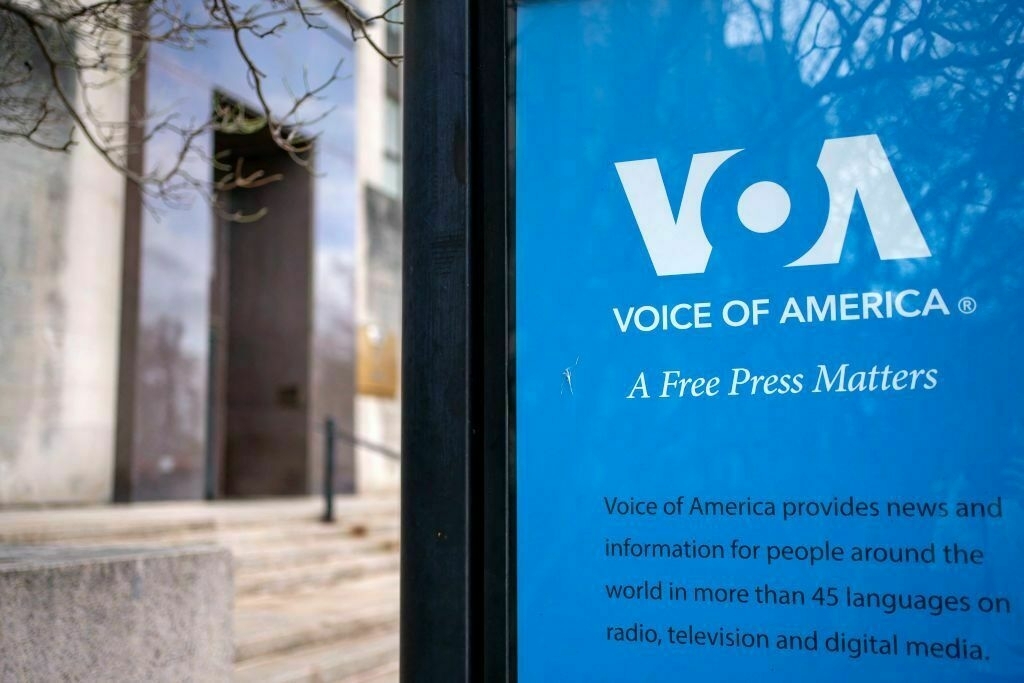
A U.S. judge on March 28 halted the Trump administration’s efforts to shut down Voice of America (VoA), temporarily preventing the firing of some 1,300 employees placed on leave earlier this month.
District Judge J. Paul Oetken granted a temporary restraining order following a lawsuit filed by VoA staff, unions, and Reporters Without Borders (RSF) last week.
The ruling presents yet another obstacle to U.S. President Donald Trump’s planned dismantling of the U.S. Agency for Global Media (USAGM), which oversees VoA, Radio Free Europe/Radio Liberty (RFE/RL), and Radio Free Asia.
Oetken said that the administration “failed to provide adequate reasoning behind the sweeping changes to USAGM and seemingly failed to consider any reliance issues in effectively closing the agency."
VoA is a government-funded media founded in 1942, broadcasting in almost 50 languages around the world.
“We’re very pleased that the judge agreed to freeze any further action by the government to dismantle Voice of America,” said Clayton Weimers, the executive director of RSF USA, in a statement.
“The fight to save VOA — and, indeed, the free press — continues as the Trump administration works to deprive the world of a reliable source of information."
Earlier this week, USAGM reversed its decision to terminate grant funding for RFE/RL after a district court ruled the funding freeze was unlawful.
With peace talks underway, Ukrainian political veterans align themselves with TrumpUkrainian political veterans long out of power have emerged as a new source of pressure on Ukraine’s political leadership. Following the clash in the Oval Office between President Volodymyr Zelensky and his U.S. counterpart, Donald Trump, the White House began to look for ways to subdue Zelensky.…The Kyiv IndependentKateryna Denisova
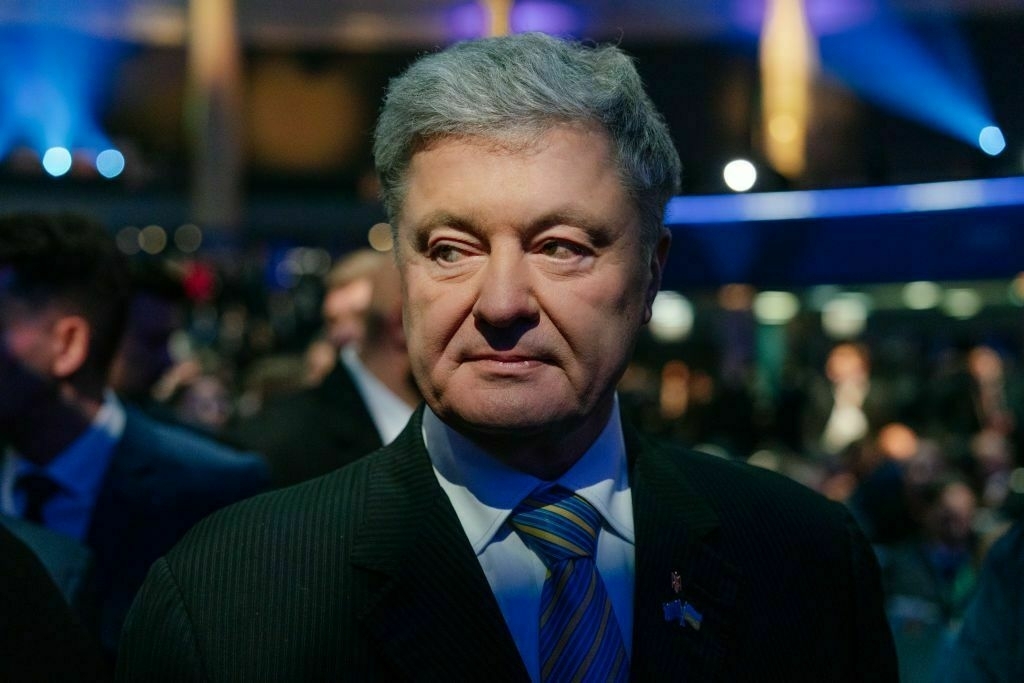
-
Ukraine formalizing agreements on European military aid, intelligence sharing ahead of next Ramstein summit, Zelensky says
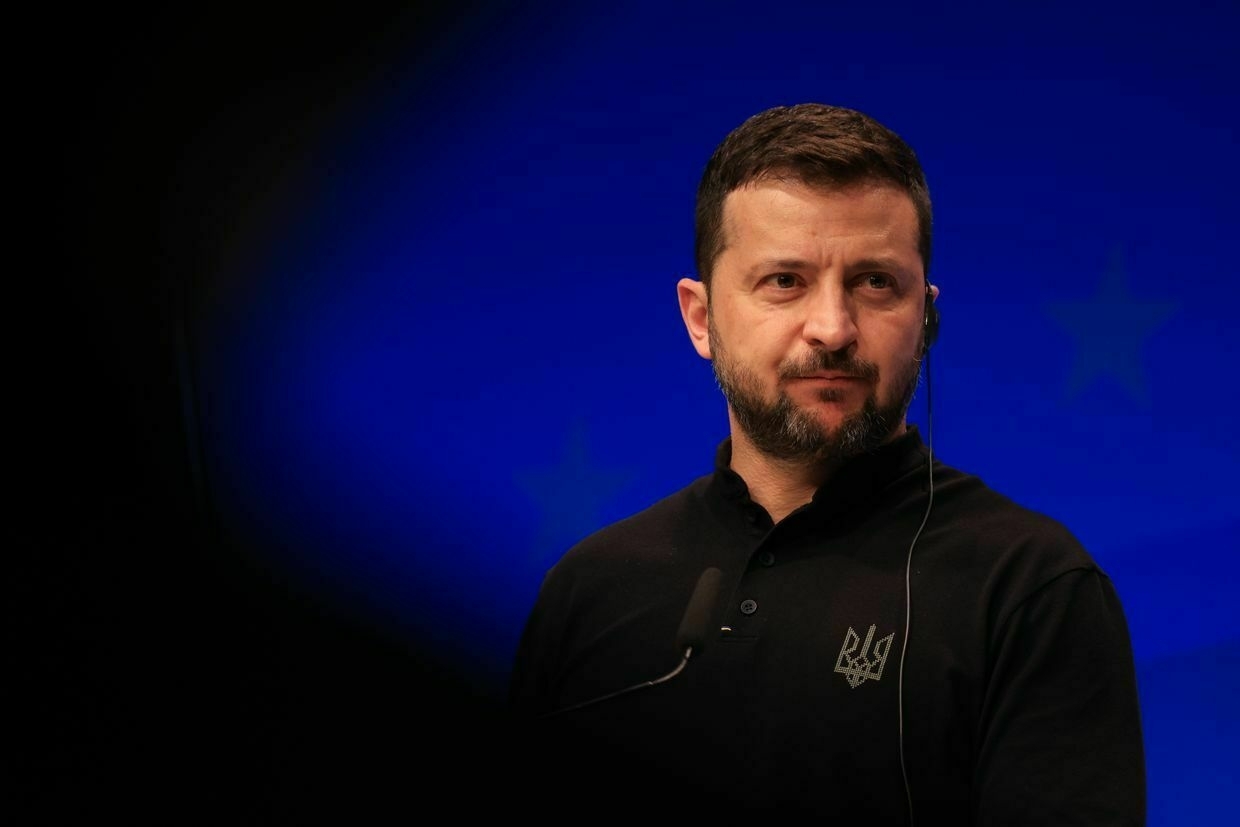
Ukraine is working to finalize agreements with European nations for additional military aid shipments as well as expanded intelligence sharing ahead of the next Ramstein summit, President Volodymyr Zelensky said on March 28.
The next Ramstein-format meeting of the Ukrainian Defense Contact Group (UDCG) will likely be held on April 11 in Brussels, and will be chaired by the United Kingdom.
“We agreed with some leaders on Ukraine’s access to their ammunition stockpiles,” Zelensky told reporters during a press conference, adding that Ukraine has reached agreements with unnamed countries for air defense and artillery production, as well as “on investments in the production of Ukrainian drones and missiles."
Zelensky noted that the pledges in support came from European allies at the Paris summit on March 27, co-led by French President Emmanuel Macron and British Prime Minister Keir Starmer. Ahead of the summit, France announced it would provide Ukraine with a new military aid package worth 2 billion euros ($2.1 billion).
Several European countries agreed to move forward with plans to send troops to Ukraine as part of a “reassurance force” in case of the ceasefire with Russia, Macron announced at the end of the Paris summit.
Speaking to reporters, Zelensky also noted that a number of unspecified European allies agreed on “expanding Ukraine’s access to intelligence data, relevant technologies, and satellites owned by our European colleagues."
The commitments from allies come as the United States under the Trump administration temporarily stopped sharing intelligence with Ukraine following a heated exchange between Trump and President Volodymyr Zelensky in the White House on Feb. 28. The U.S. had resumed sharing intelligence with Ukraine on March 12.
European officials have also weighed satellite alternatives to Starlink following media reports that the U.S. had threatened to terminate Starlink service in order to pressure Kyiv to sign a minerals deal with Washington.
The additional supports come as Ukrainian, British and French general staff representatives are preparing to hold a meeting in Ukraine within a week to discuss the potential deployment of foreign troops to the country.
Zelensky said during his press conference that United States will hold consultations with Saudi Arabia, Turkey, and some European countries regarding monitoring a partial ceasefire.
Starmer has maintained that for any peacekeeping coalition to succeed, Europe must “have strong U.S. backing."
Ukraine won’t sign minerals deal with US if it threatens EU membership, Zelensky saysThe Financial Times reported on March 27 that the latest version of the agreement proposed by the U.S. includes terms that would grant Washington unprecedented control over Ukraine’s natural resources through a joint investment fund.The Kyiv IndependentKateryna Denisova
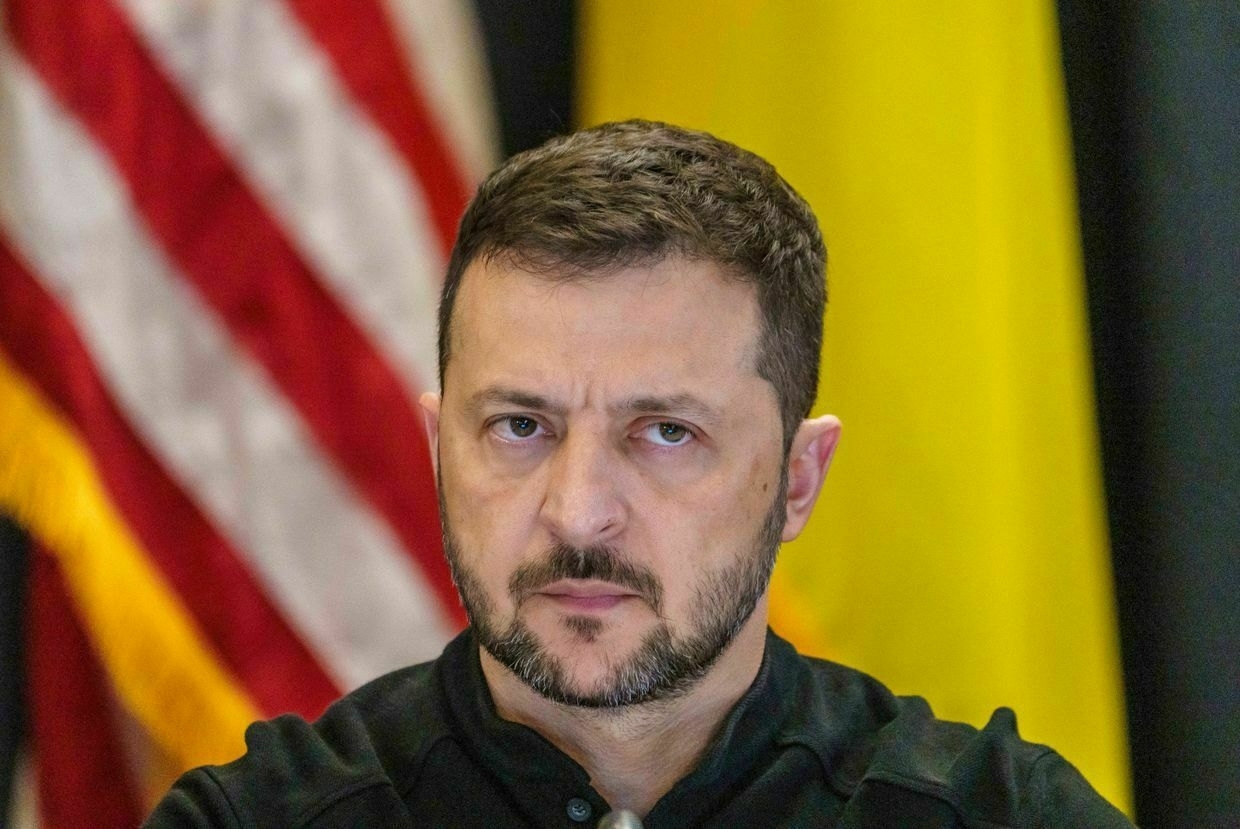
-
State Department officially informs Congress of plans to dissolve USAID, CNN reports
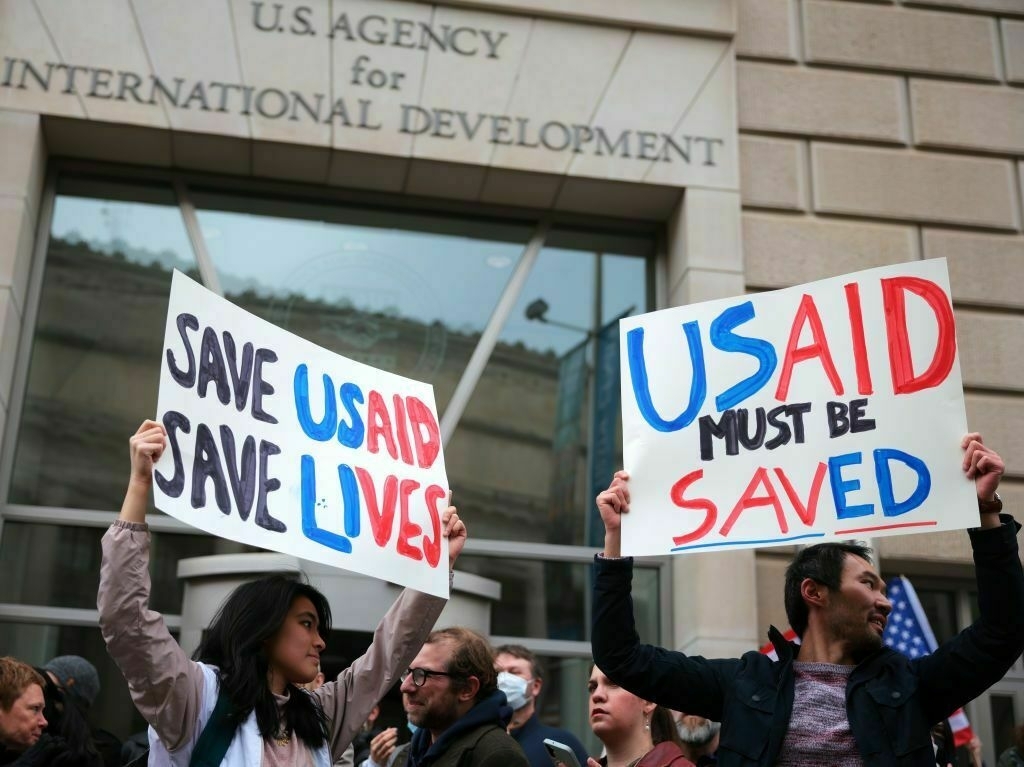
The State Department formally notified Congress on March 28 that it is dismantling the U.S. Agency for International Development (USAID) and transferring some of its functions under its jurisdiction.
According to the notification, the agency, which has been central to U.S. foreign aid efforts, will be disbanded by July 1.
The move effectively ends USAID, a multibillion-dollar agency tasked with fighting global poverty and hunger. The decision to shutter an agency created by Congress without legislative input is expected to spark legal challenges. Critics warn that eliminating USAID could undermine humanitarian efforts, while the Trump administration has accused the agency of mismanaging taxpayer funds and supporting overseas programs that do not align with U.S. interests.
Since taking office, the Trump administration has systematically gutted USAID, halting nearly all foreign aid programs pending review, firing thousands of employees, and canceling billions of dollars in aid contracts.
US foreign aid transformed Ukraine. Its suspension threatens decades of workEditor’s Note: The Kyiv Independent isn’t a recipient of U.S. foreign aid, and its funding wasn’t affected by the aid freeze. With the stroke of a pen, U.S. President Donald Trump last week put a freeze on projects that have helped Ukraine become freer andThe Kyiv IndependentDaria Shulzhenko

As of last week, fewer than 900 USAID employees remained, according to an internal agency notice to Congress. The cuts have triggered lawsuits from aid groups and staff members, some of whom were forced to return home from overseas assignments without reimbursement.
USAID was a primary target of Elon Musk’s Department of Government Efficiency (DOGE), which is implementing deep cuts across federal agencies. In a message to USAID employees obtained by CNN, Jeremy Lewin, a DOGE liaison and senior USAID official, defended the decision, saying it would “significantly enhance efficiency, accountability, uniformity, and strategic impact” in foreign aid efforts. He confirmed that most non-statutory positions at USAID will be eliminated, with employees receiving reduction-in-force notices starting March 28.
Some USAID programs, including humanitarian assistance, global health efforts, strategic investment, and limited national security projects, will be absorbed by the State Department’s regional bureaus, according to the congressional notification.
However, other functions deemed redundant will be cut entirely. The restructuring has faced significant pushback from career officials, with one senior USAID official placed on leave after blaming Trump appointees for crippling the government’s ability to carry out life-saving humanitarian missions.
US court blocks cuts to USAID, says Musk’s DOGE likely violated ConstitutionThe court order requires the Trump administration to restore email and computer access to all USAID employees, including those on administrative leave. However, it does not reinstate the agency in full or reverse staff firings.The Kyiv IndependentTim Zadorozhnyy
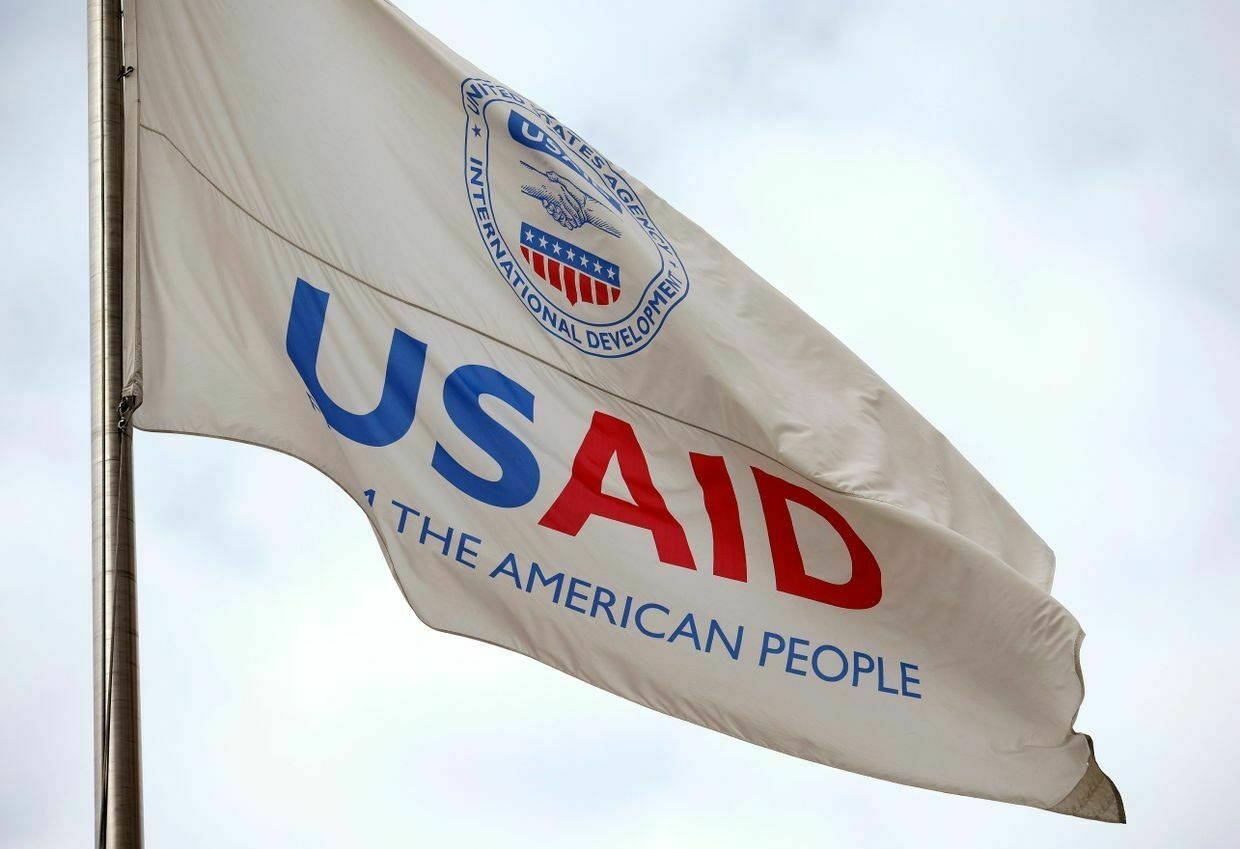
-
With peace talks underway, Ukrainian political veterans align with Trump
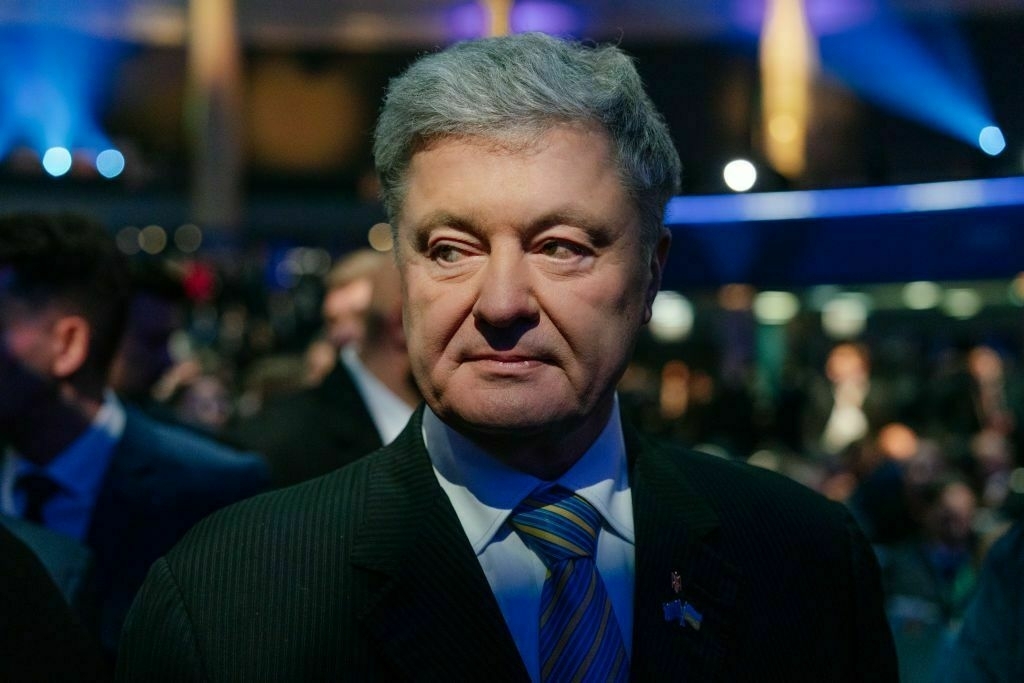
Ukrainian political veterans long out of power have emerged as a new source of pressure on Ukraine’s political leadership.
Following the clash in the Oval Office between President Volodymyr Zelensky and his U.S. counterpart, Donald Trump, the White House began to look for ways to subdue Zelensky.
Trump’s halt on U.S. military aid shipments and intelligence sharing with Ukraine was part of the pressure campaign. The White House, however, was looking for additional ways to hit Zelensky’s standing at home.
Former President Petro Poroshenko, the de facto leader of Ukraine’s opposition, said following the scuffle that he wouldn’t criticize Zelensky “because this is not what the country needs now."
Following his team’s reported meetings with members of the Trump administration, the former president changed his tune and lashed out at his successor.
He criticized Zelensky for the sanctions imposed on him and said that Zelensky is the “unfortunate leader of the team who moves the nation to dictatorship."
In an interview with the Guardian, published on March 24, Poroshenko said that the White House meeting was a “disastrous mistake” by Zelensky and his team.
He also said that Ukraine should “forget now the word offensive operation” and stop losing “people, territory and time.” The narratives appear to be in sync with Trump’s.
Simultaneously, the same pivot was made by former Prime Minister Yulia Tymoshenko, who also was in contact with Trump’s inner circle, according to Politico.
Political analyst Volodymyr Fesenko said that Tymoshenko and Poroshenko’s rhetoric has escalated due to the ongoing ceasefire talks that would potentially trigger an election campaign in Ukraine.
Aligning with the U.S. leadership against that of Ukraine, for some, may seem as a politically beneficial thing to do.
“There are again expectations that there may be a ceasefire agreement in the near future, and then the start of the election campaign in some time. This, I think, is pushing both Poroshenko and Tymoshenko to this (political) positioning,” Fesenko said.
White House dismisses Putin’s proposal for temporary government in UkrainePutin suggested a transitional administration, overseen by the U.N. and several countries, could be formed in Ukraine to organize elections.The Kyiv IndependentTim Zadorozhnyy
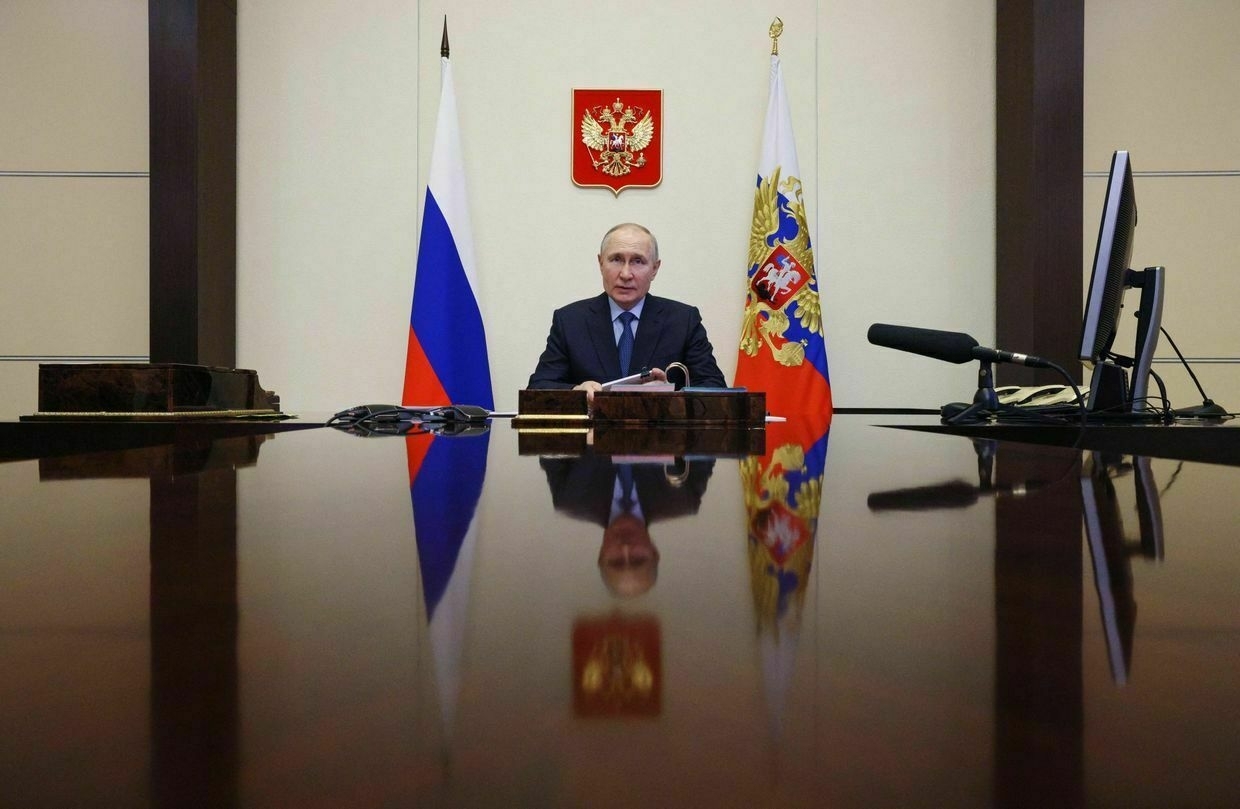
US ties with Ukrainian oppositionIn early March, Politico reported, citing three unnamed Ukrainian lawmakers and a U.S. Republican foreign policy expert, that Trump’s allies held secret talks with senior members of Poroshenko’s European Solidarity party, as well as with Batkivshchyna (Fartherland) party leader Tymoshenko.
The talks were reportedly focused on whether Ukraine can hold quick presidential elections. The two politicians confirmed that talks occurred but denied the meetings were part of a plot to replace Zelensky.
Both parties hold a few dozen seats in Ukraine’s parliament.
Meetings between Ukrainian politicians and their foreign counterparts are commonplace, lawmakers from the opposition parties told the Kyiv Independent.
Lawmaker Mykola Kniazhytskyi, representing Poroshenko’s European Solidarity, said he visited the U.S. with the ruling Servant of the People party as part of a Ukrainian delegation. They met with congressmen from the Democratic and Republican parties, including “people close to Trump."
“We will never allow ourselves to go and talk to anyone abroad about the elections, about any harm to Zelensky, since, in this case, Russia wants to overthrow Zelensky,” Kniazhytskyi told the Kyiv Independent.
“Obviously, we want to hold elections in opposition to Zelensky. But we believe that holding elections now under martial law is dangerous for the stability of the country. It can be used by the Russians against us."
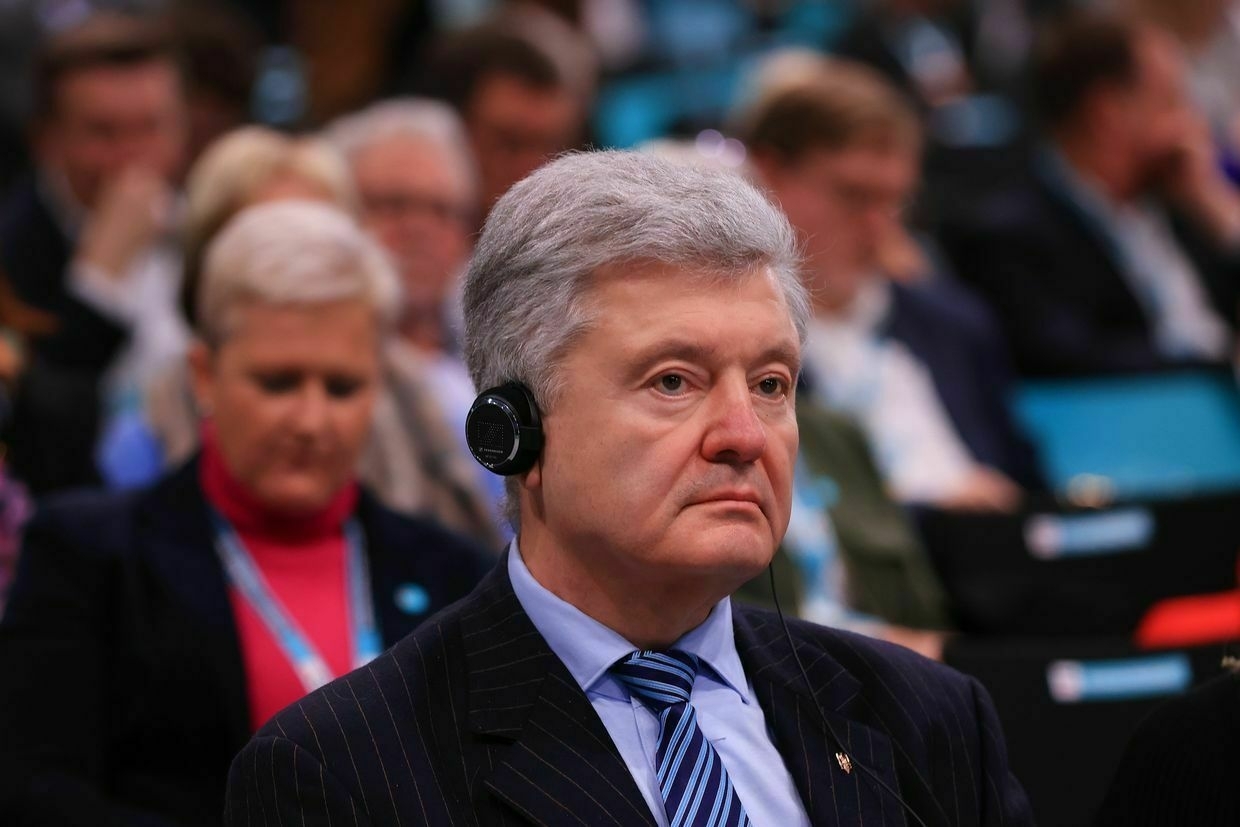
Petro Poroshenko, Ukraine’s former president, attends the Christian Democratic Union (CDU) convention in Berlin, Germany, on Feb. 3, 2025. (Krisztian Bocsi/Bloomberg via Getty Images) Both Poroshenko and Tymoshenko maintain a strong presence in Ukraine’s parliament and are well-known in and out of Ukraine due to their political careers spanning decades.
Tymoshenko’s career highlight was her role as prime minister in 2005 and again between 2007 and 2010. Poroshenko was Ukraine’s president from 2014 until 2019, when he lost his reelection bid to Zelensky in a runoff landslide.
Tymoshenko and Poroshenko attempt to stay relevant in Ukraine and abroad. Both hired American lobbyists to promote their interests in the U.S., Radio Free Europe/Radio Liberty’s investigation project Schemes and Deutsche Welle reported.
Despite the flurry of activity, neither Tymoshenko nor Poroshenko have a real chance of competing with Zelensky.
According to a survey carried out by the Identity and Borders in Flux: The Case of Ukraine (IBIF) project in partnership with the Kyiv International Institute of Sociology (KIIS), around 8% of Ukrainians would vote for Poroshenko and 5% for Tymoshenko. The poll showed that 41% support Zelensky.
The poll didn’t include Valerii Zaluzhnyi, former commander-in-chief of the Ukrainian Armed Forces, who is seen as Zelensky’s main and likely only real challenger.
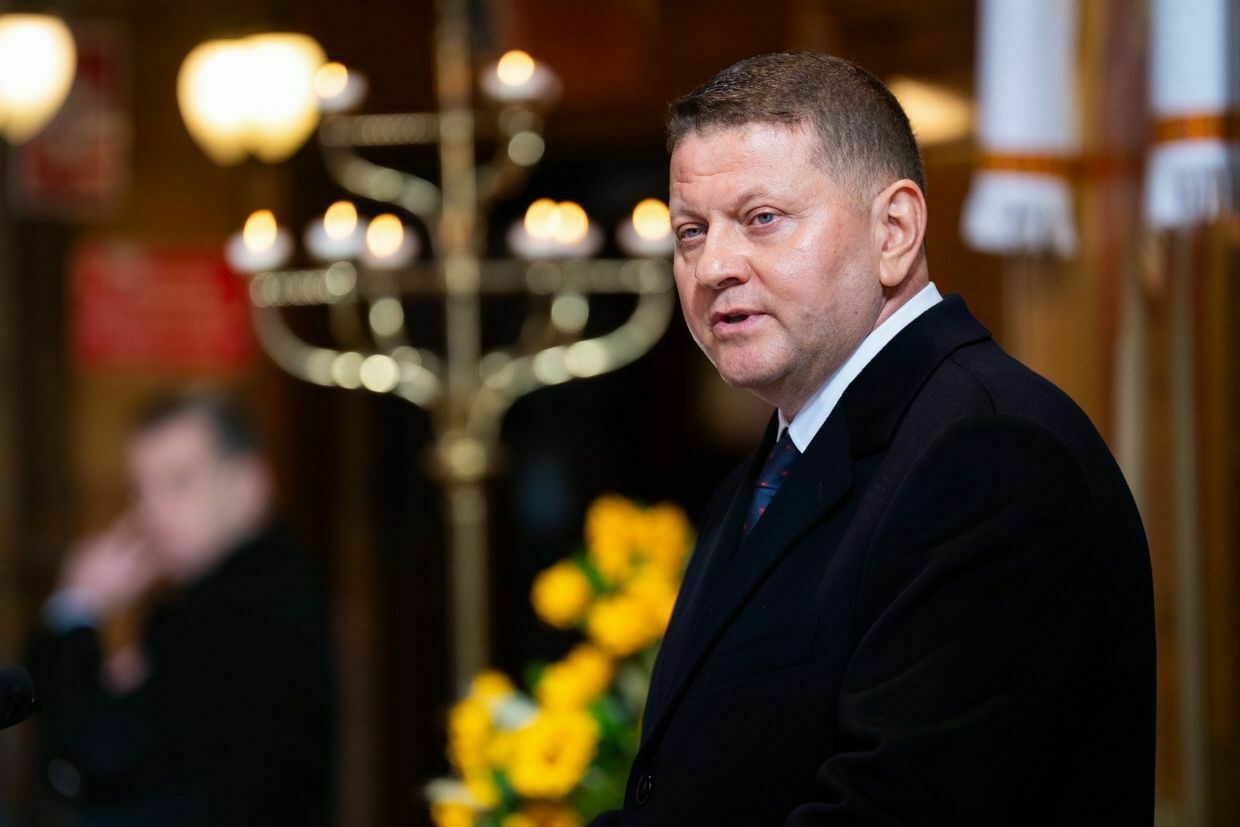
Ukrainian Ambassador to the U.K., Valerii Zaluzhnyi, speaks at an interfaith prayer service to mark the third anniversary of Russia’s invasion of Ukraine in London on Feb. 24, 2025. (James Manning/PA Images via Getty Images) Over the years, Poroshenko and Tymoshenko’s influence on Ukraine politics had been dying out.
Tymoshenko ran for president three times, losing all her bids and not making it to the runoff during her last try in 2019.
Poroshenko has been voted out of office by a vast majority of Ukrainians, gaining a mere 25% in the 2019 presidential election runoff, compared to Zelensky’s 75%.
Poroshenko’s tenure as president coincided with Trump’s first term. Now, Poroshenko is praising their relationship with Trump, positioning himself as one of the few who knows how to deal with the U.S. president.
Following Trump’s inauguration, both Ukrainian politicians traveled to the U.S. to meet with those close to the new president.
Poroshenko said he met in December with Trump’s National Security Adviser Mike Waltz and Mike Treanor, Republican congressman and chairman of the House of Representatives Intelligence Committee, in July.
When asked about his current relations with Trump, the former president said he had a handshake with him during the National Prayer Breakfast in Washington last month.
Unlike Poroshenko, Tymoshenko has always remained tight-lipped about her meetings with U.S. top officials.
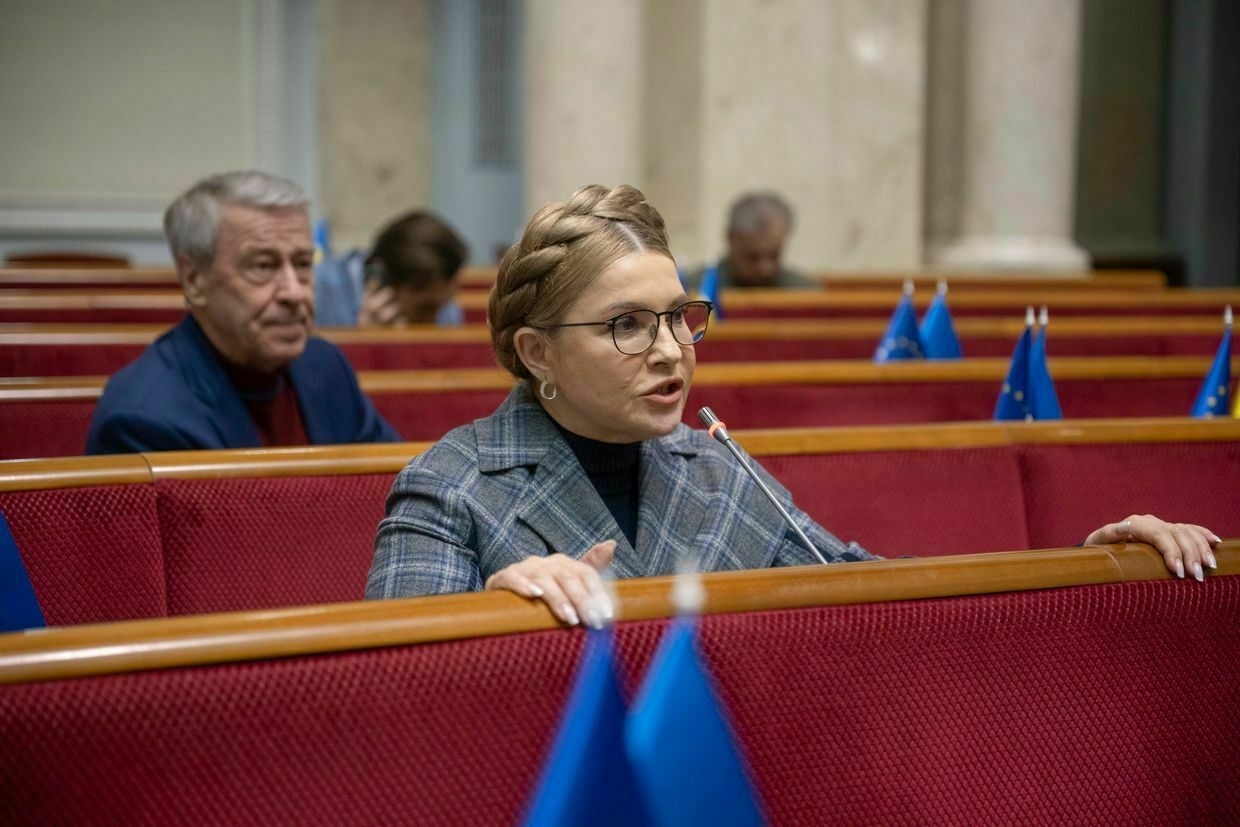
Yulia Tymoshenko speaks during a session at the Ukrainian parliament in Kyiv, Ukraine, on Feb. 23, 2023. (Andrii Nesterenko / Global Images Ukraine via Getty Images) 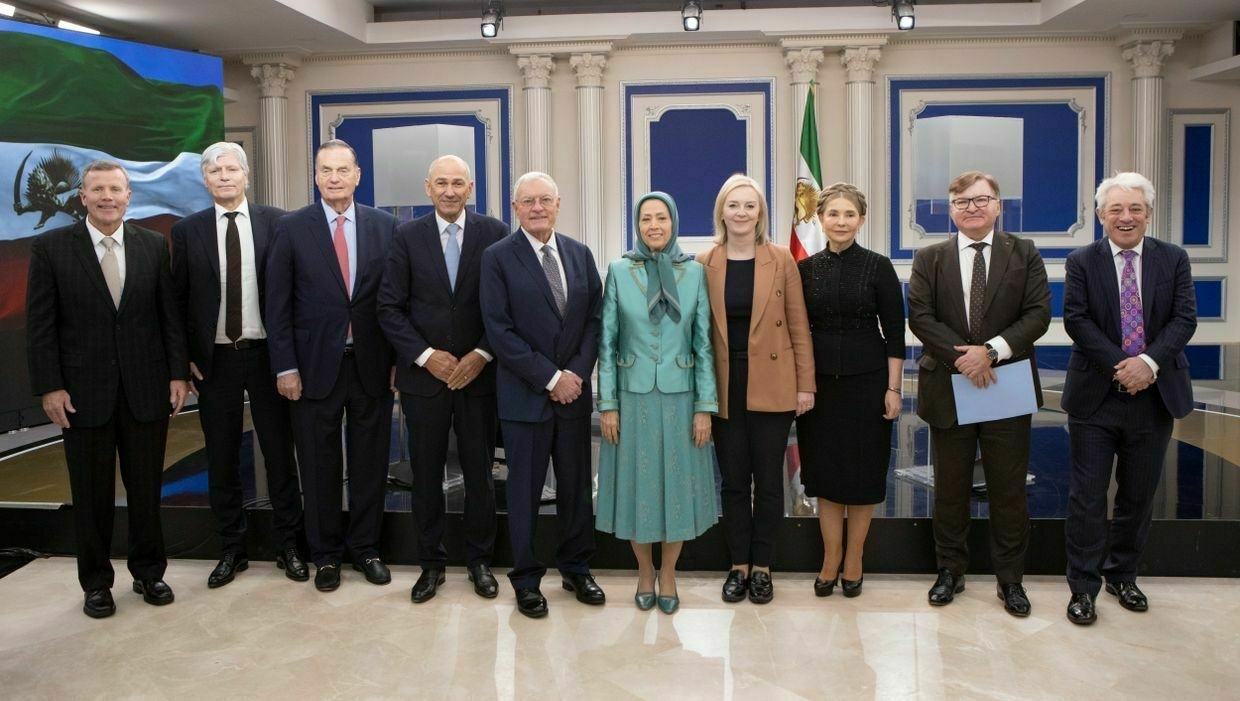
The speakers at the conference, (L-R) General Tod Wolters, Ola Elvestuen, Gen. James Jones, Janez Jansa, Lt. Gen. Keith Kellogg, Maryam Rajavi, Liz Truss, Yulia Tymoshenko, Hryhoriy Nemyria, and John Bercow pose for a photo in Auvers-sur-Oise, France, on Jan. 11, 2025. (Siavosh Hosseini / SOPA Images / Getty Images) In early January, a photo of her with Keith Kellogg was published during an Iranian opposition event in Paris.
Later, Tymoshenko was spotted in the U.S. during one of the events marking Trump’s January inauguration. It’s unclear whether she was invited and whether she met with American officials. Soon after, the politician was spotted at a Ukrainian prayer breakfast in Washington that brought together a number of Ukrainian lawmakers.
Politico reported on March 18, citing undisclosed sources, that U.S. President Donald Trump’s son, Donald Jr., far-right political commentator Tucker Carlson, Trump’s son-in-law Jared Kushner, and Special Envoy Steve Witkoff were involved in backchannel talks with Zelensky’s political rivals.
Out of the four, only Witkoff is a government official.
Neither Tymoshenko nor Poroshenko commented on these reports.
According to Fesenko, throughout her career, Tymoshenko has always sought contacts with those in the U.S. administration — whoever the president was.
“This is her instinct,” the expert said.
“I don’t think she (Tymoshenko) has that many contacts with Americans, but for her, it is a matter of political survival. She’s a very experienced, very active politician, and now there’s a situation where she sees contradictions between Trump’s and Zelensky’s positions, and she’s trying to take advantage of it,” he added.
As Ukraine’s fate hangs in the balance, ‘Soviet’ command culture damages war effortLast February, a Ukrainian company commander going by his callsign Veter was ordered to send his people to reinforce another unit’s position over the next few hours. He was told that four National Guardsmen were holding the position on the other side of the village they were defending inThe Kyiv IndependentNatalia Yermak
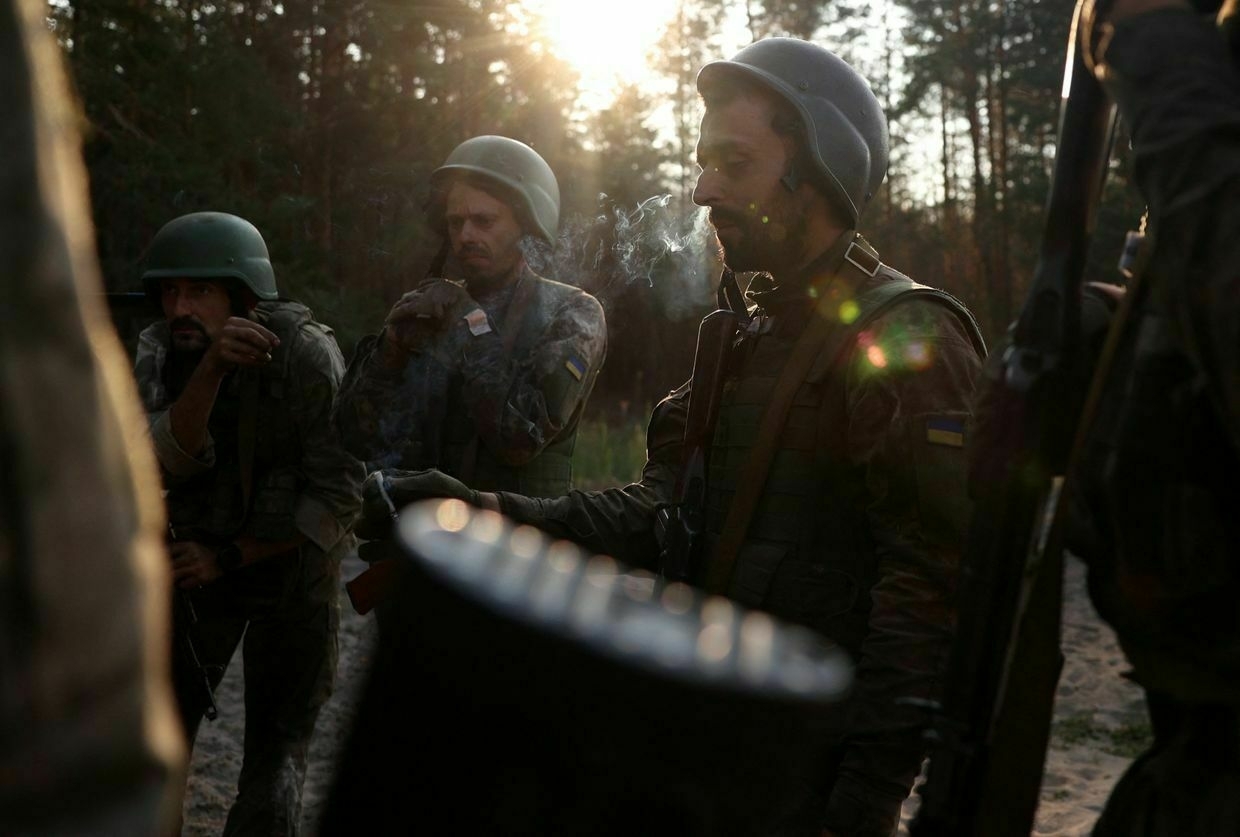
Misreading Ukrainian politicsWhile willingness of Ukrainian politicians to secure the backing of U.S. officials may be logically explained by political observers, Trump’s fixation on Ukrainian elections signals his misunderstanding of Ukrainian domestic politics, experts say.
“Trump is a hostage of his own worldview. He believes that what he says is the last resort.”
"The fact that Trump is talking about elections shows a complete lack of understanding of what is happening in Ukraine and what the internal political situation is," said Olexiy Haran, research advisor at the Democratic Initiatives Foundation.
"I think this is a brazen interference in Ukrainian politics."
Observers believe that Trump's look at Ukraine is distorted. Just like Russia's.
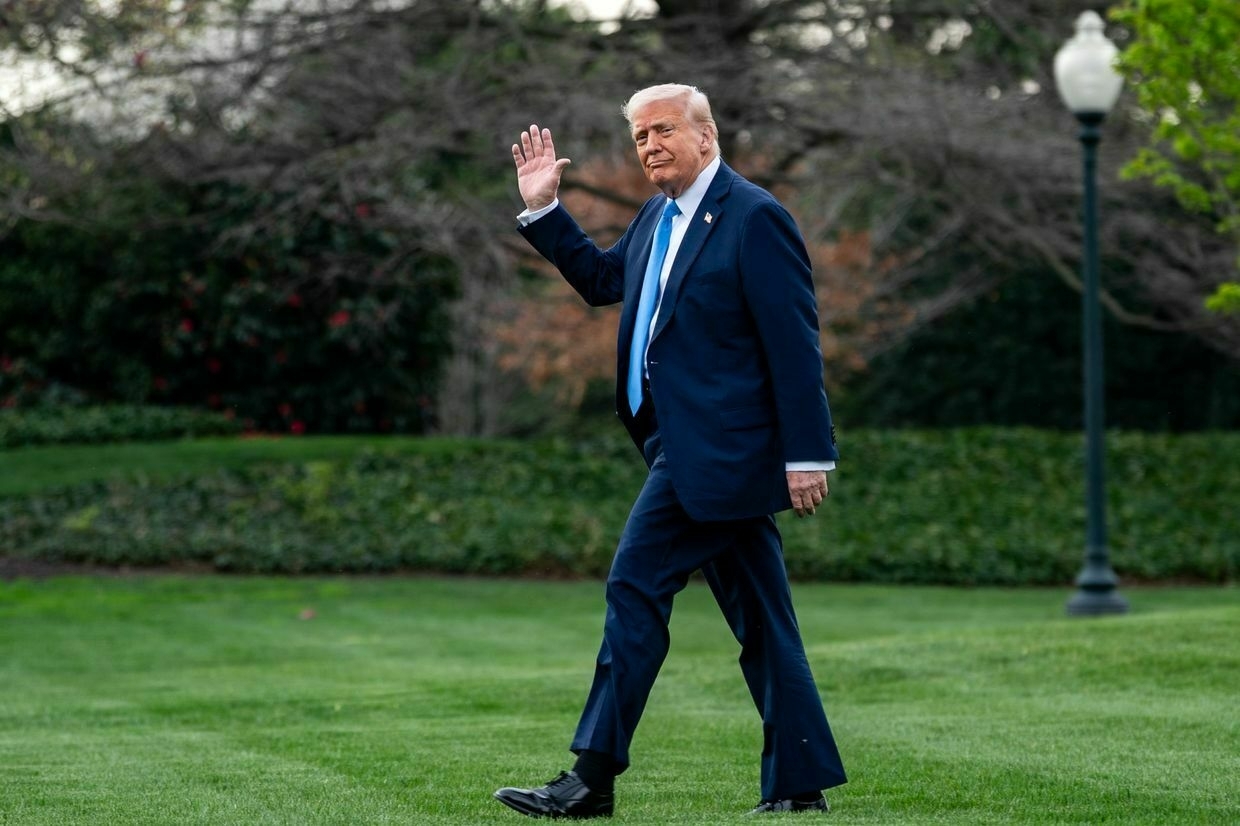
U.S. President Donald Trump walks on the South Lawn of the White House before boarding Marine One in Washington, D.C., on March 28, 2025. (Bonnie Cash / UPI / Bloomberg via Getty Images) "Trump is a hostage of his own worldview. He believes that what he says is the last resort," said political analyst Yevhen Magda.
"I think that in the current circumstances, Trump's position is a relay of (Vladimir) Putin's position."
Back in 2019, Russia considered Zelensky's presidential candidacy to be more favorable for Moscow, seeing him as potentially someone who could bring Ukraine closer to Russia and make concessions amid the ongoing war. Zelensky played along, saying that he would be the best person to talk to Russia.
Following a few months in office, Zelensky began to toughen up his rhetoric and later imposed sanctions on the country's pro-Russian politicians.
"Putin believed that if we replaced Poroshenko, Ukraine would surrender. Now, he believes that if we replace Zelensky, Ukraine will surrender. For some reason, Americans believe that the new person who comes after him will make concessions to Russia. In fact, they don't understand that the main power is the Ukrainian people fighting for their independence," said Haran.
"Trump says: Ukraine may survive or may not survive. He does not understand what Ukraine is. He generally does not understand what a nation that fights for its independence is."
As Ukraine-Russia ceasefire progress inches forward, here’s where things standAfter three days of separate intensive discussions with the United States, Russia and Ukraine left the latest round of ceasefire talks in Saudi Arabia with agreements to declare a limited ceasefire in the Black Sea and to halt strikes against energy facilities. While lauded by the White House as pr…The Kyiv IndependentAndrea Januta
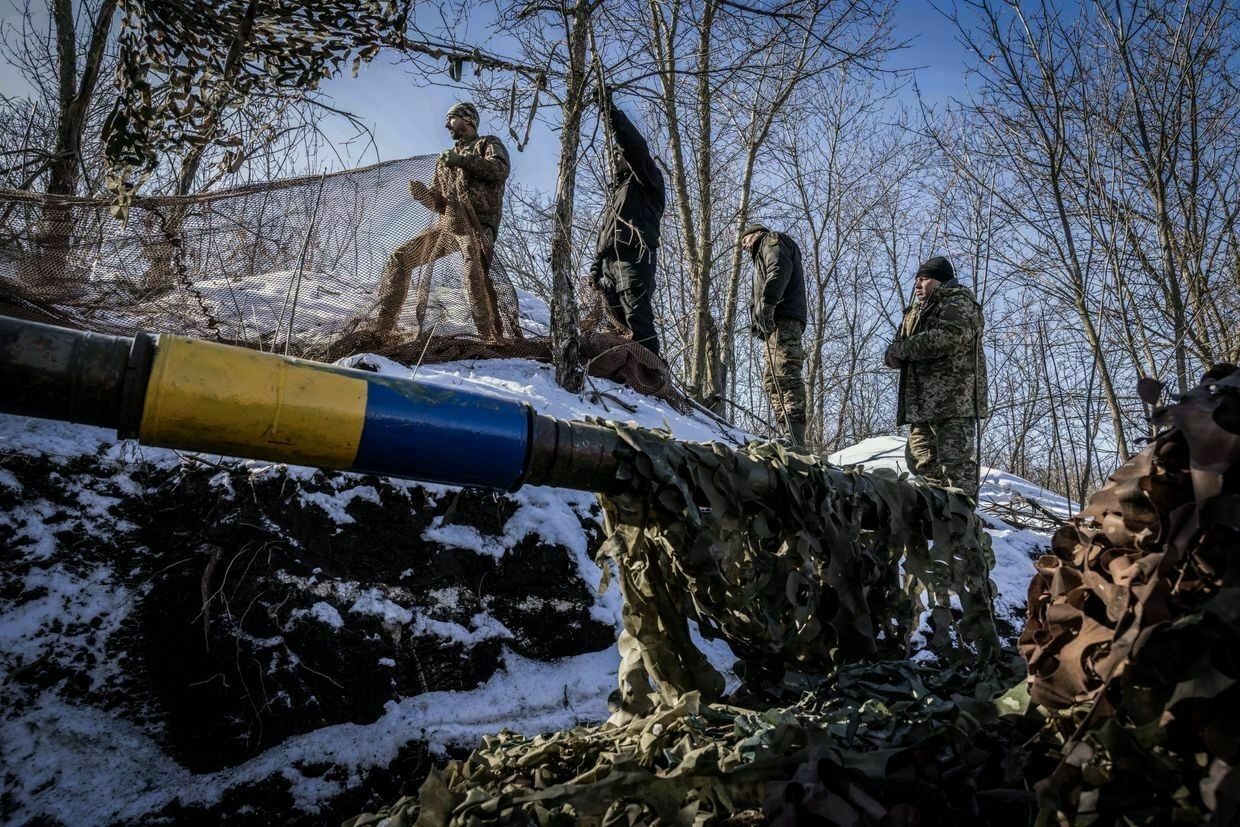
Note from the author:
Hello there! This is Kateryna Denisova, the author of this piece. I hope you found this article informative. Despite ongoing Russia’s full-scale war, Ukraine’s domestic politics has been brewing over past months.
Please consider supporting our reporting. We promise to deliver more stories on this topic going forward.
-
Ukraine won't sign minerals deal with US if it threatens EU membership, Zelensky says
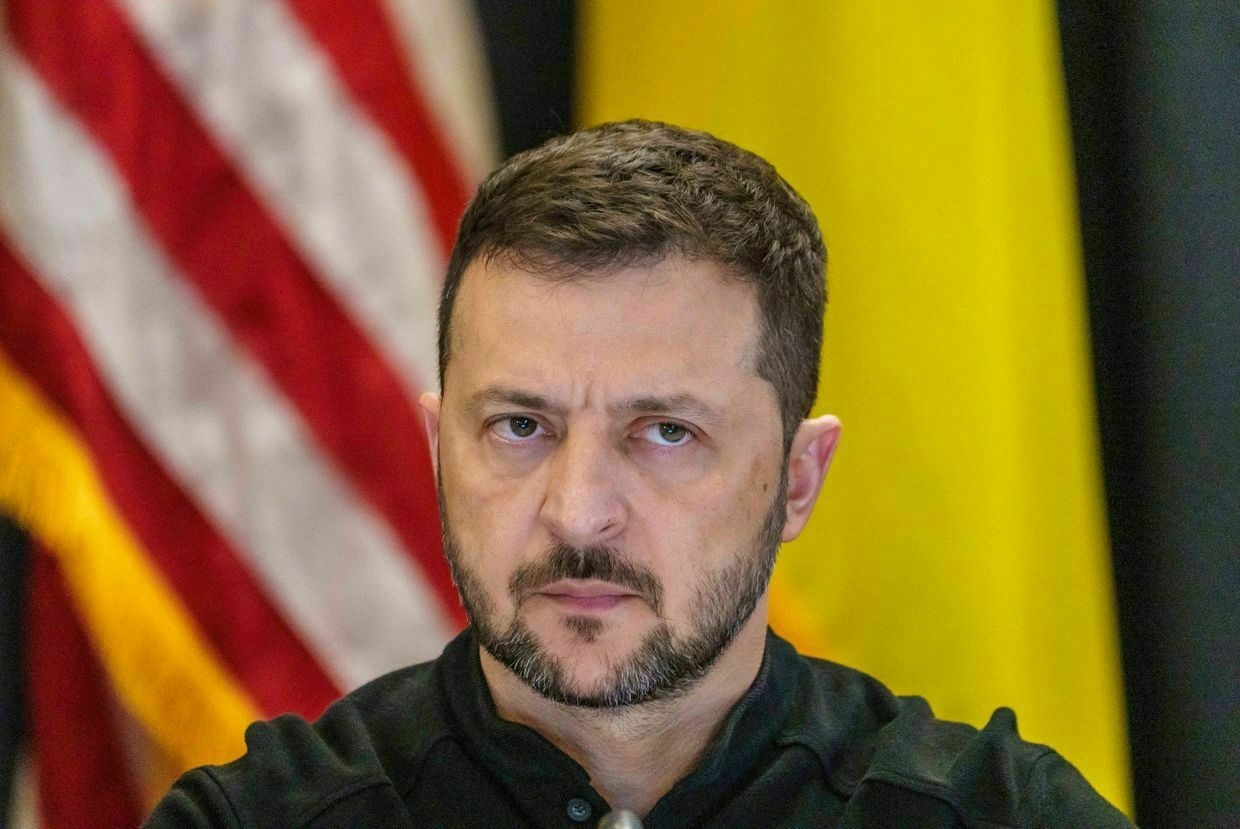
Ukraine will not sign a minerals deal with the U.S. if it threatens its accession to the European Union, President Volodymyr Zelensky said on March 28.
Zelensky’s remarks came a day after details of a new alleged draft of a mineral agreement between Kyiv and Washington emerged. The Financial Times reported on March 27 that the latest version of the agreement proposed by the U.S. includes terms that would grant Washington unprecedented control over Ukraine’s natural resources through a joint investment fund.
Ukrainian online newspaper Yevropeiska Pravda reported that the deal may contradict Ukraine’s EU accession due to severe restrictions that affect Ukraine’s economic sovereignty.
“The Constitution of Ukraine makes it clear that our course is towards the EU,” Zelensky told reporters. “Nothing that could threaten Ukraine’s accession to the EU can be accepted."
According to Zelensky, Ukraine officially received a new version of the minerals deal from the U.S. on March 28.
Zelensky will consider the deal when there are “no relevant legislative threats,” adding that lawyers should compare the all versions of the deal and give their assessment.
“There are a lot of things (in the new version of the deal) that had not been discussed before. And there are also some things that the parties had previously rejected,” the president added.
Washington had initially planned to sign the agreement on Feb. 28, but the process was delayed after a heated dispute between U.S. President Donald Trump and Zelensky at the White House.
Zelensky confirmed on March 25 that the U.S. had proposed a “major” minerals deal based on a previous framework agreement, but he did not specify a signing timeline. A day earlier, Trump had said he expected the deal to be signed “soon."
According to the initial version, the agreement would establish a fund to which Ukraine would contribute 50% of proceeds from the future extraction of state-owned resources, including oil, gas, and logistics infrastructure.
The version Kyiv approved earlier does not include security guarantees but says that the fund “will be reinvested at least annually in Ukraine to promote the safety, security, and prosperity of Ukraine."
The White House has described the minerals deal as a mechanism for the U.S. to “recoup” some of the financial aid it has provided to Ukraine since the start of Russia’s full-scale invasion.
‘Trump looks at Putin as a friend’ — Expert negotiator dissects Ukraine-Russia ceasefire talksU.S. President Donald Trump’s stated goal of bringing a swift end to Russia’s full-scale invasion of Ukraine is looking evermore distant, with only two tentative partial ceasefires to show after several rounds of talks. Ukraine has already agreed to a U.S.-proposed full 30-day ceasefire, saying on…The Kyiv IndependentChris York
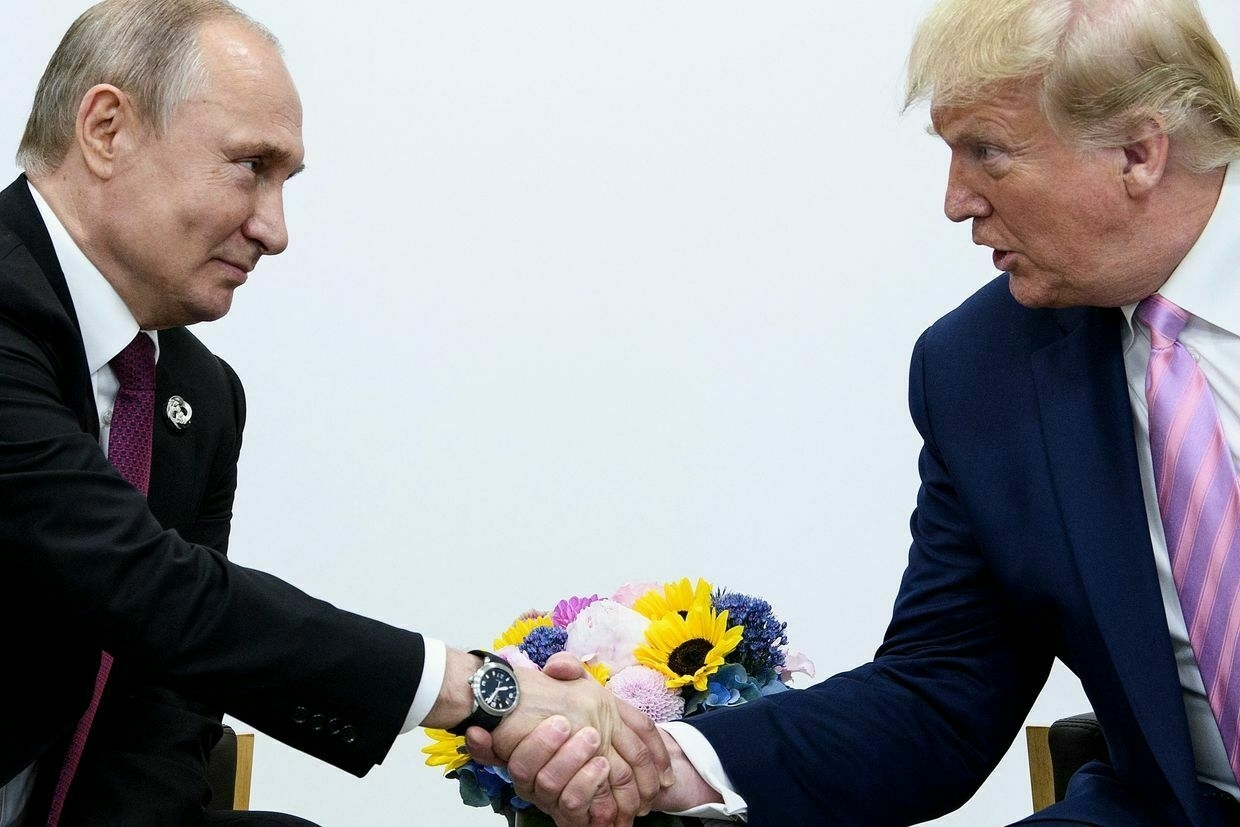
-
Ukraine war latest: Russia intensifies assault in Zaporizhzhia Oblast, military says
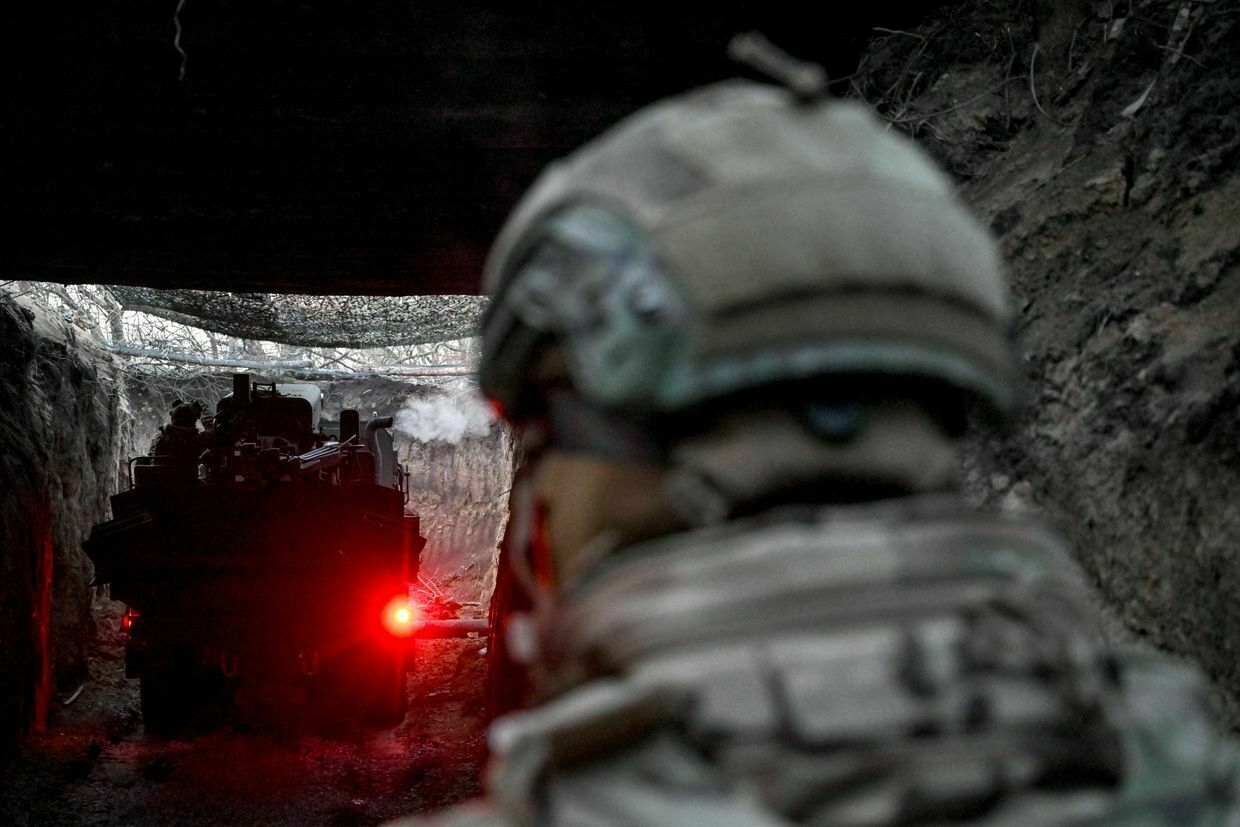
Key developments on March 28:
- Russia intensifies assault in Zaporizhzhia, increasing pressure on Ukraine’s southern positions, military says
- Russia makes excuses to break ceasefire on energy infrastructure strikes
- EU preparing 17th package of Russia sanctions, EUobserver reports
- UK, French military officials to meet in Ukraine to discuss troop deployment
Russia has intensified assault operations in the Zaporizhzhia sector, increasing pressure on Ukraine’s southern positions, Ukraine’s Southern Defense Forces spokesperson Vladyslav Voloshyn said on March 28 during Ukraine’s state-run telethon.
The Ukrainian military reported escalating hostilities and a rise in attacks on key areas. Zaporizhzhia Oblast holds strategic importance for Russia, underscoring its efforts to advance in the region.
Voloshyn said Russia seeks to strengthen its position ahead of potential truce or ceasefire negotiations. “The Russians want to get as much of a head start or advance as much as possible in Zaporizhzhia Oblast,” he said.
According to the spokesperson, Russian forces have massed troops for assault operations using small infantry groups. This tactic, deployed in other sectors, has yielded some results in Zaporizhzhia, particularly near Orikhiv and Hulyaypole.
The number of such attacks has risen significantly since the beginning of spring, Voloshyn said.
Zaporizhzhia Oblast, in southeastern Ukraine, borders Dnipropetrovsk Oblast to the north, Donetsk Oblast to the east, and Kherson Oblast to the south. It is also home to the Russian-occupied Zaporizhzhia Nuclear Power Plant, one of Europe’s largest.
‘Trump looks at Putin as a friend’ — Expert negotiator dissects Ukraine-Russia ceasefire talksU.S. President Donald Trump’s stated goal of bringing a swift end to Russia’s full-scale invasion of Ukraine is looking evermore distant, with only two tentative partial ceasefires to show after several rounds of talks. Ukraine has already agreed to a U.S.-proposed full 30-day ceasefire, saying on…The Kyiv IndependentChris York
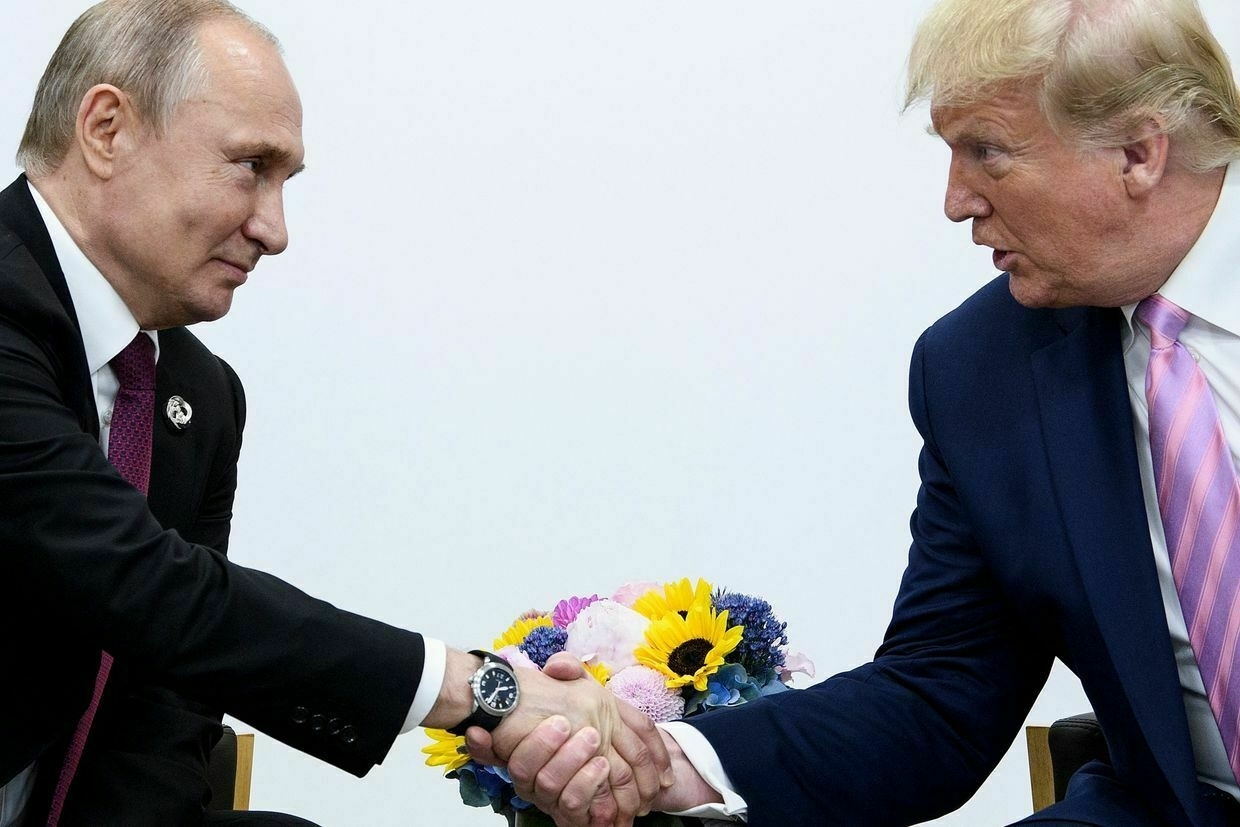
Russia makes excuses to break ceasefire on energy infrastructure strikesMoscow on March 28 insisted it was adhering to a ceasefire on striking energy infrastructure, whilst simultaneously laying the groundwork for breaking it.
Ukraine and Russia had announced a halt on energy strikes after consultations with the U.S. in Riyadh earlier this week.
There have been no reported Ukrainian strikes on Russian energy infrastructure since but Russia has accused Kyiv of targeting the Sudzha gas metering station, which used to be critical transit point for Russian gas exports to Europe.
Ukraine’s General Staff denied the allegations, saying: “Ukraine’s Defense Forces strictly adhere to the agreements reached with partners to stop attacks on energy facilities.
“Fire is carried out exclusively on military targets."
Ukraine had previously accused Russia of deliberately striking the Sudzha gas station in Kursk Oblast on March 21 to frame Kyiv.
Speaking on March 28, Kremlin spokesperson Dmitry Peskov said Russia “reserves the right, in case the Kyiv regime does not comply with this moratorium, of course, not to comply with it either."
“It would be illogical for us to comply and face attempts to strike our energy infrastructure facilities every night,” he added.
White House dismisses Putin’s proposal for temporary government in UkrainePutin suggested a transitional administration, overseen by the U.N. and several countries, could be formed in Ukraine to organize elections.The Kyiv IndependentTim Zadorozhnyy
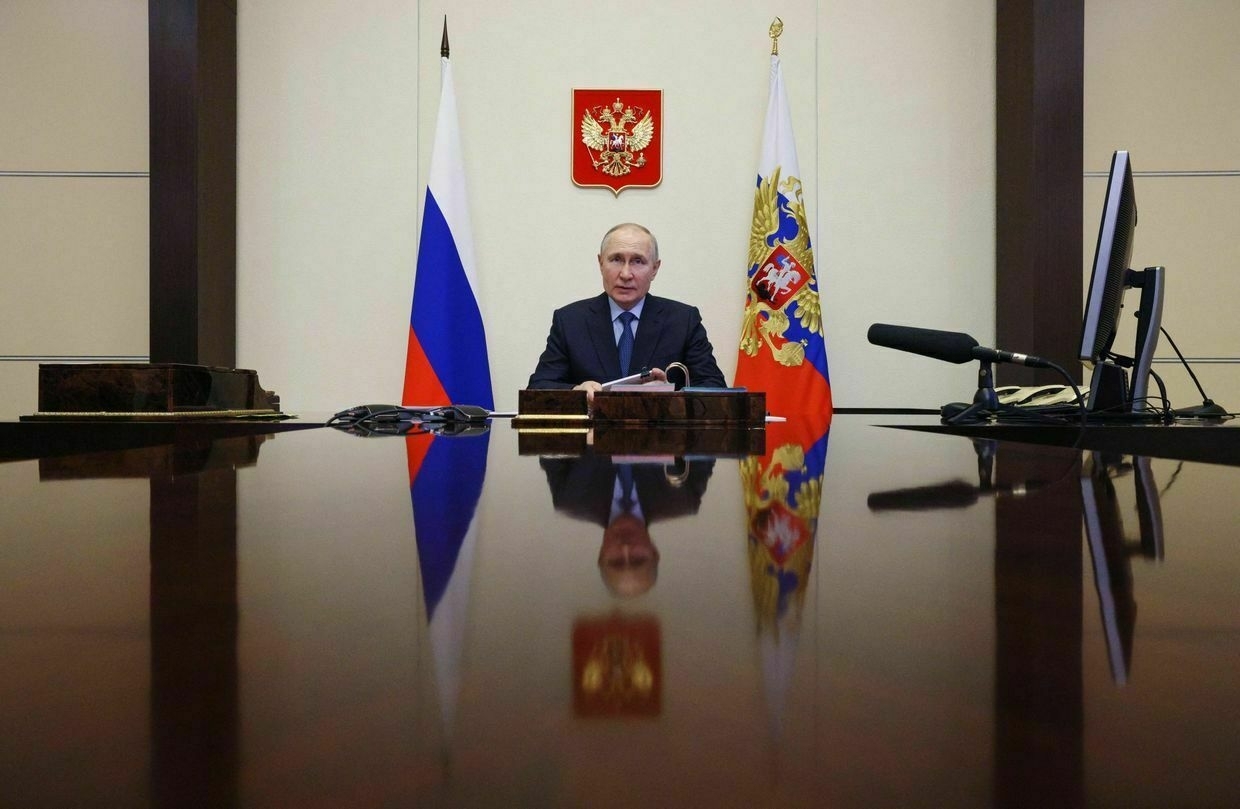
EU preparing 17th package of Russia sanctions, EUobserver reportsThe European Union is preparing its 17th package of sanctions against Russia amid Moscow’s demands for lifting some Western restrictions as part of its ceasefire terms, EUobserver reported on March 27, citing four unnamed EU diplomats.
Work on a new round of EU sanctions against Russia has started and is “at a very early stage,” one of the sources told EUobserver. The European Commission is expected to present its proposals in early summer, another diplomat told the media outlet.
Commenting on the timeline, one of the diplomats told the outlet that “it’s too speculative at this point,” adding that the bloc will be watching how the ceasefire talks between the U.S., Ukraine and Russia will unfold.
“Keep up the pressure on Russia. It was very clear that the sanctions stay in place. What we want is a just and lasting peace agreement. That is the goal,” European Commission President Ursula von der Leyen said on March 27 following a “Coalition of the Willing” summit in Paris.
Russia’s allies including North Korea could join Ukraine ceasefire talks, Putin saysRussian President Vladimir Putin also listed China, India, Brazil, and South Africa among those he sees as potential participants.The Kyiv IndependentTim Zadorozhnyy
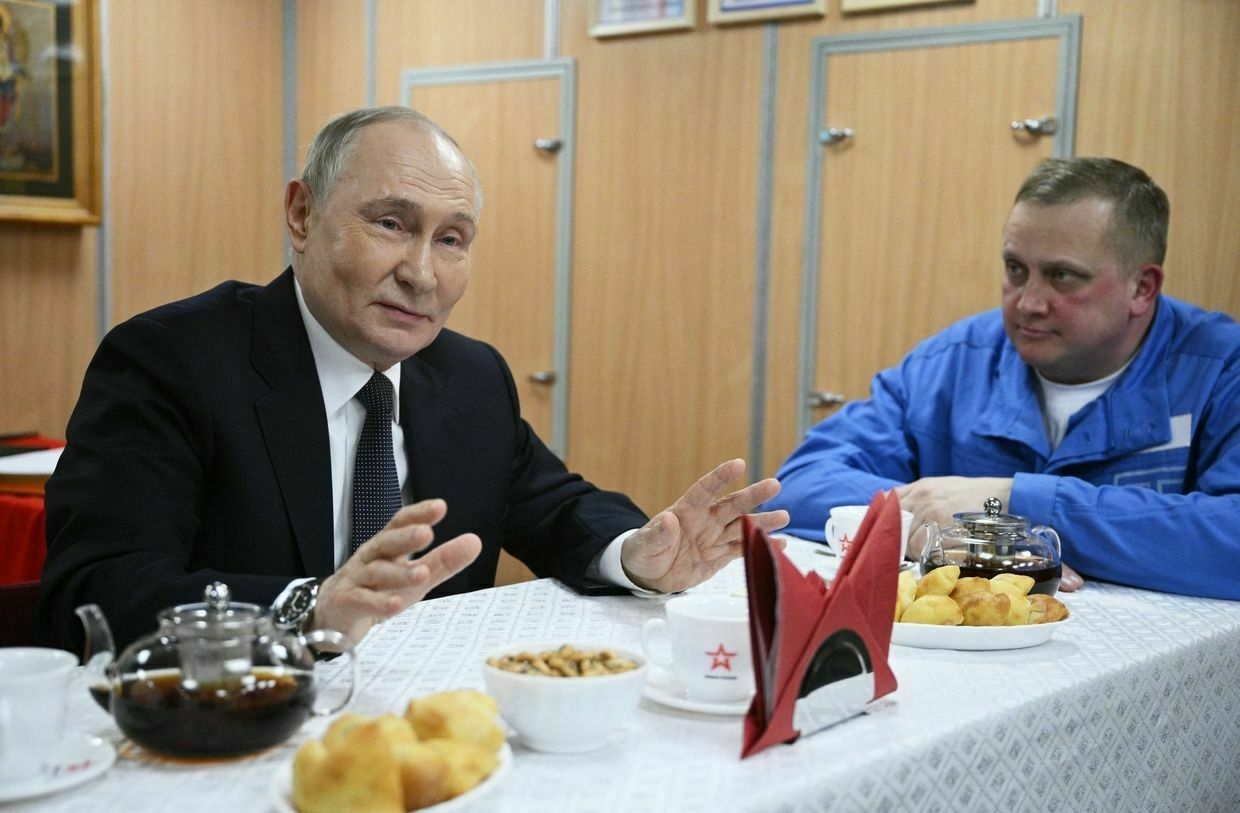
UK, French military officials to meet in Ukraine to discuss troop deploymentUkrainian, British and French general staff representatives will hold a meeting in Ukraine within a week to discuss the potential deployment of foreign troops to the country, President Volodymyr Zelensky said on March 28.
He said that other countries would also participate but did not specify them.
The news came a day after a Paris summit where a number of European countries moved forward with plans to send soldiers to Ukraine as part of a “reassurance force” in case of a ceasefire with Russia.
The initiative is co-led by France and the U.K., which will both send military delegations to Ukraine to discuss the so-called “reassurance force,” as well as the future shape of Ukraine’s army, French President Emmanuel Macron said.
According to Zelensky, the meeting will be attended by countries that “will be 100% in favor of (a peacekeeping) contingent on the territory of Ukraine."
“Not all of them will come, there will be a narrow circle. France, the U.K., and Ukraine will definitely be there,” the president told reporters.
The next meeting will be held at the level of national security advisors soon after, Zelensky said.
Note from the author:
Ukraine War Latest is put together by the Kyiv Independent news desk team, who keep you informed 24 hours a day, seven days a week. If you value our work and want to ensure we have the resources to continue, join the Kyiv Independent community.
As Ukraine’s fate hangs in the balance, ‘Soviet’ command culture damages war effortLast February, a Ukrainian company commander going by his callsign Veter was ordered to send his people to reinforce another unit’s position over the next few hours. He was told that four National Guardsmen were holding the position on the other side of the village they were defending inThe Kyiv IndependentNatalia Yermak
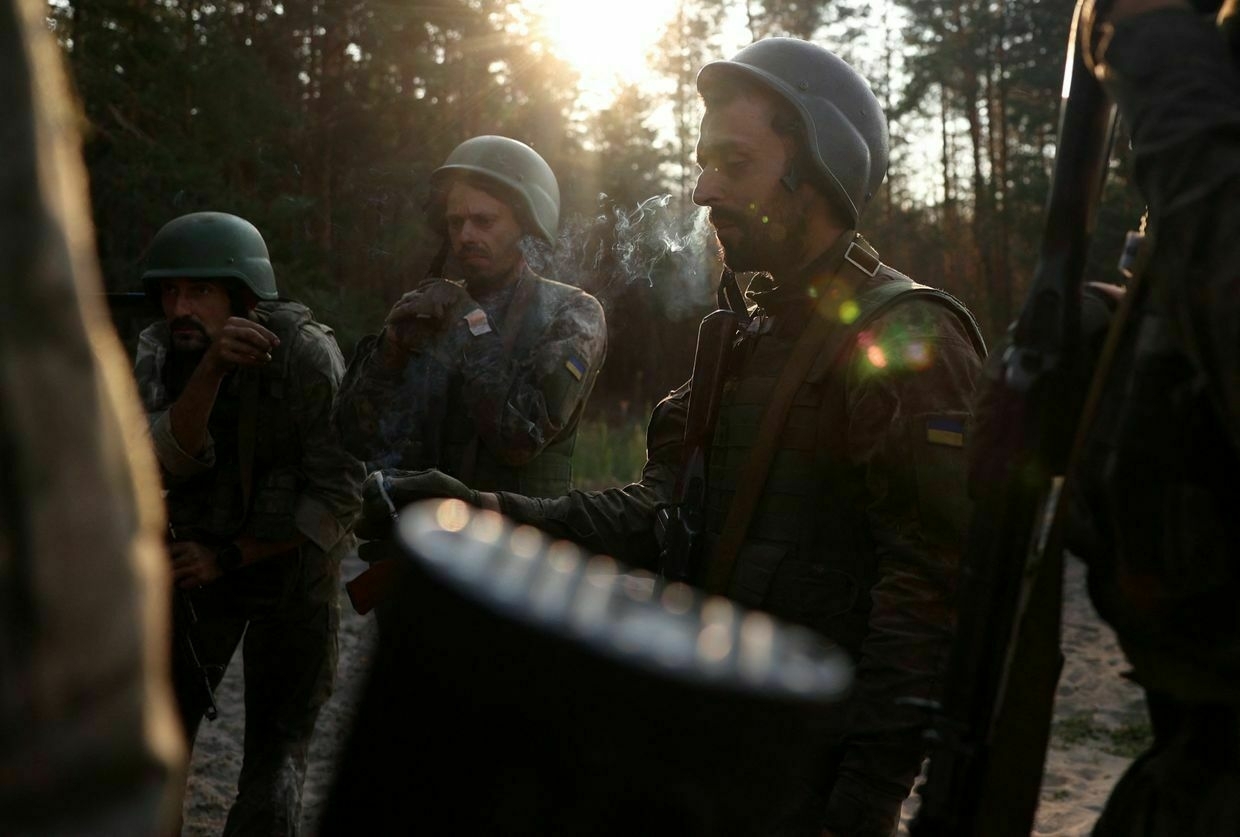
-
UK, French military officials to meet in Ukraine to discuss troop deployment
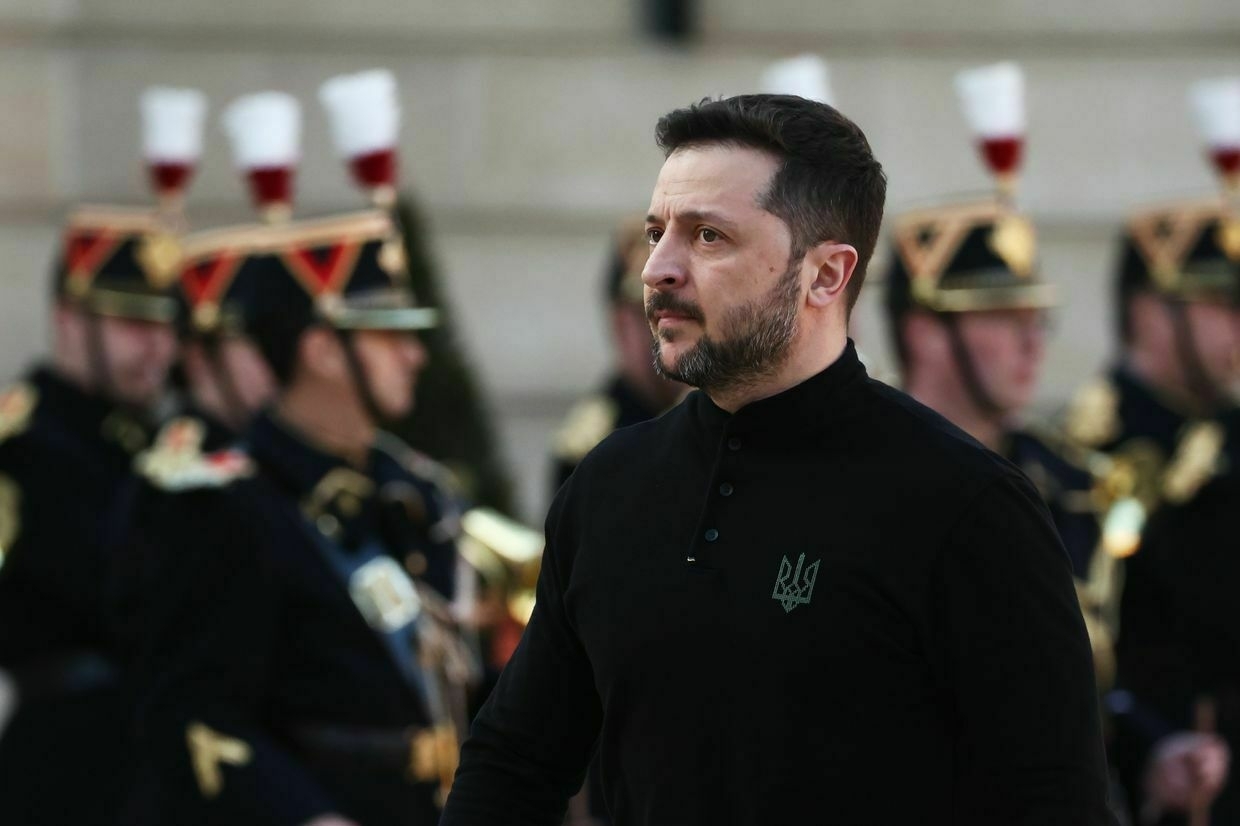
Ukrainian, British and French general staff representatives will hold a meeting in Ukraine within a week to discuss the potential deployment of foreign troops to the country, President Volodymyr Zelensky said on March 28.
He said that other countries would also participate but did not specify them.
The news came a day after a Paris summit where a number of European countries moved forward with plans to send soldiers to Ukraine as part of a “reassurance force” in case of a ceasefire with Russia.
The initiative is co-led by France and the U.K., which will both send military delegations to Ukraine to discuss the so-called “reassurance force,” as well as the future shape of Ukraine’s army, French President Emmanuel Macron said.
According to Zelensky, the meeting will be attended by countries that “will be 100% in favor of (a peacekeeping) contingent on the territory of Ukraine."
“Not all of them will come, there will be a narrow circle. France, the U.K., and Ukraine will definitely be there,” the president told reporters.
The next meeting will be held at the level of national security advisors soon after, Zelensky said.
In mid-March, U.K. Prime Minister Keir Starmer presented plans to send 10,000 peacekeeping troops to Ukraine, which is significantly smaller than the 30,000 troops he reportedly pitched to U.S. President Donald Trump during their White House meeting on Feb. 20.
Though Starmer still publicly held out for a coalition deployment to be supported by a U.S. “backstop,” Macron said that it could take place “with or without” Washington’s involvement.
As Ukraine’s fate hangs in the balance, ‘Soviet’ command culture damages war effortLast February, a Ukrainian company commander going by his callsign Veter was ordered to send his people to reinforce another unit’s position over the next few hours. He was told that four National Guardsmen were holding the position on the other side of the village they were defending inThe Kyiv IndependentNatalia Yermak
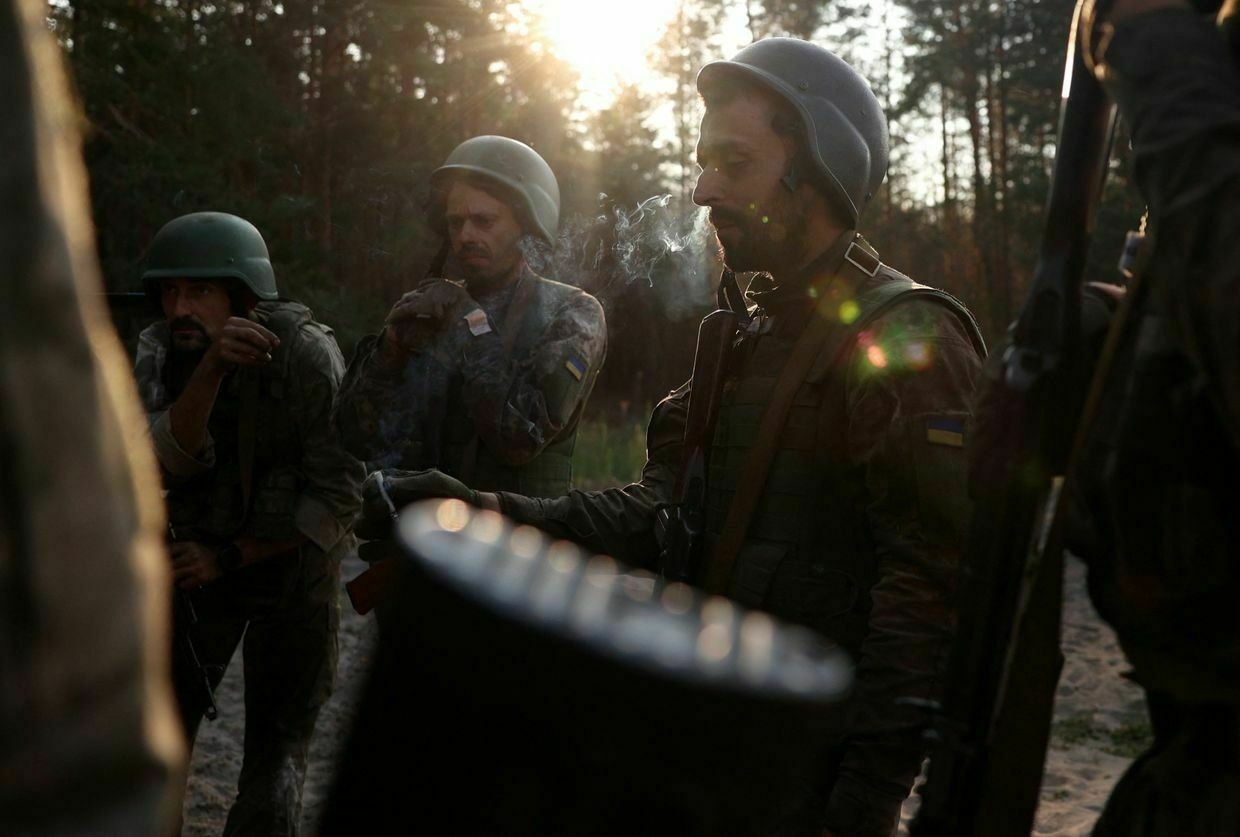
-
EU preparing 17th package of Russia sanctions, EUobserver reports
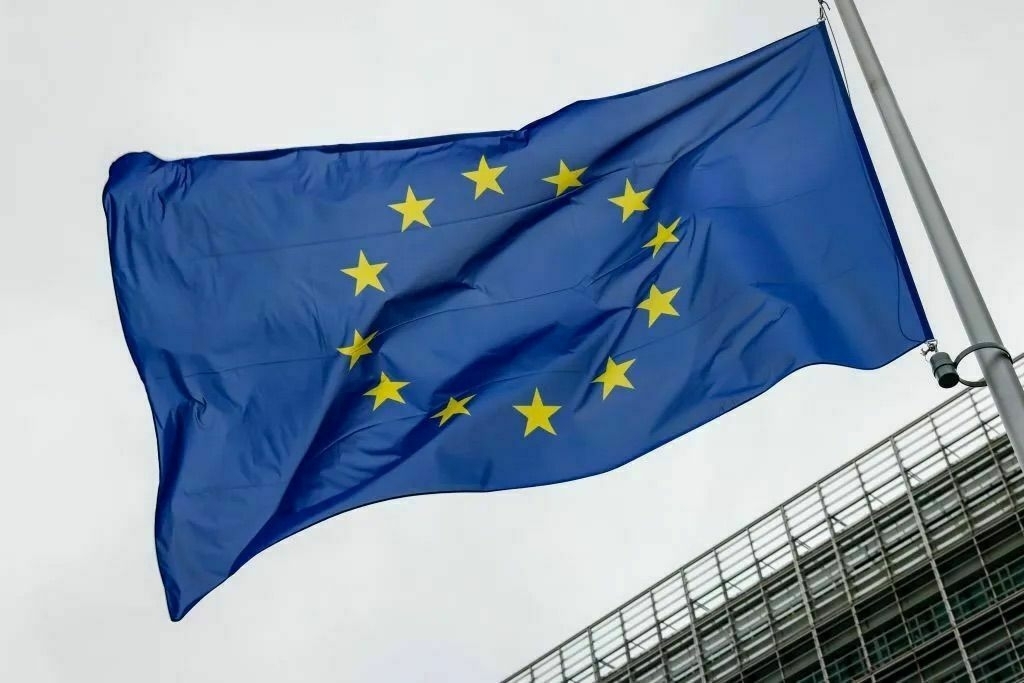
The European Union is preparing its 17th package of sanctions against Russia amid Moscow’s demands for lifting some Western restrictions as part of its ceasefire terms, EUobserver reported on March 27, citing four unnamed EU diplomats.
Following two days of talks in Saudi Arabia, Washington agreed on March 25 to help facilitate Russian food and fertilizer exports by lowering maritime insurance costs and enhancing access to global ports and payment systems. U.S. President Donald Trump said later that Washington was “looking at” the possibility of lifting some sanctions on Russia to secure the Black Sea ceasefire.
In the meantime, work on a new round of EU sanctions against Russia has started and is “at a very early stage,” one of the sources told EUobserver. The European Commission is expected to present its proposals in early summer, another diplomat told the media outlet.
Commenting on the timeline, one of the diplomats told the outlet that “it’s too speculative at this point,” adding that the bloc will be watching how the ceasefire talks between the U.S., Ukraine and Russia will unfold.
“Keep up the pressure on Russia. It was very clear that the sanctions stay in place. What we want is a just and lasting peace agreement. That is the goal,” European Commission President Ursula von der Leyen said on March 27 following a “Coalition of the Willing” summit in Paris.
According to European Commission spokesperson Anitta Hipper, Russia’s “unconditional withdrawal” from Ukraine is one of the main preconditions for changing or lifting EU sanctions.
Russia, Ukraine and the U.S. have agreed to a ceasefire in the Black Sea and a ban on energy infrastructure strikes. However, Moscow insists that the Black Sea ceasefire will take effect only if the West lifts sanctions on Rosselkhozbank and other financial institutions linked to food trade, restoring their access to the SWIFT payment system.
The Kremlin is also demanding the removal of sanctions on Russian food producers, exporters, and Russian-flagged cargo vessels involved in agricultural trade.
‘Trump looks at Putin as a friend’ — Expert negotiator dissects Ukraine-Russia ceasefire talksU.S. President Donald Trump’s stated goal of bringing a swift end to Russia’s full-scale invasion of Ukraine is looking evermore distant, with only two tentative partial ceasefires to show after several rounds of talks. Ukraine has already agreed to a U.S.-proposed full 30-day ceasefire, saying on…The Kyiv IndependentChris York
